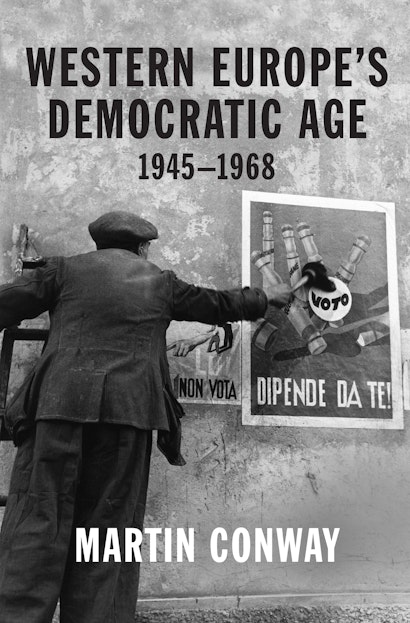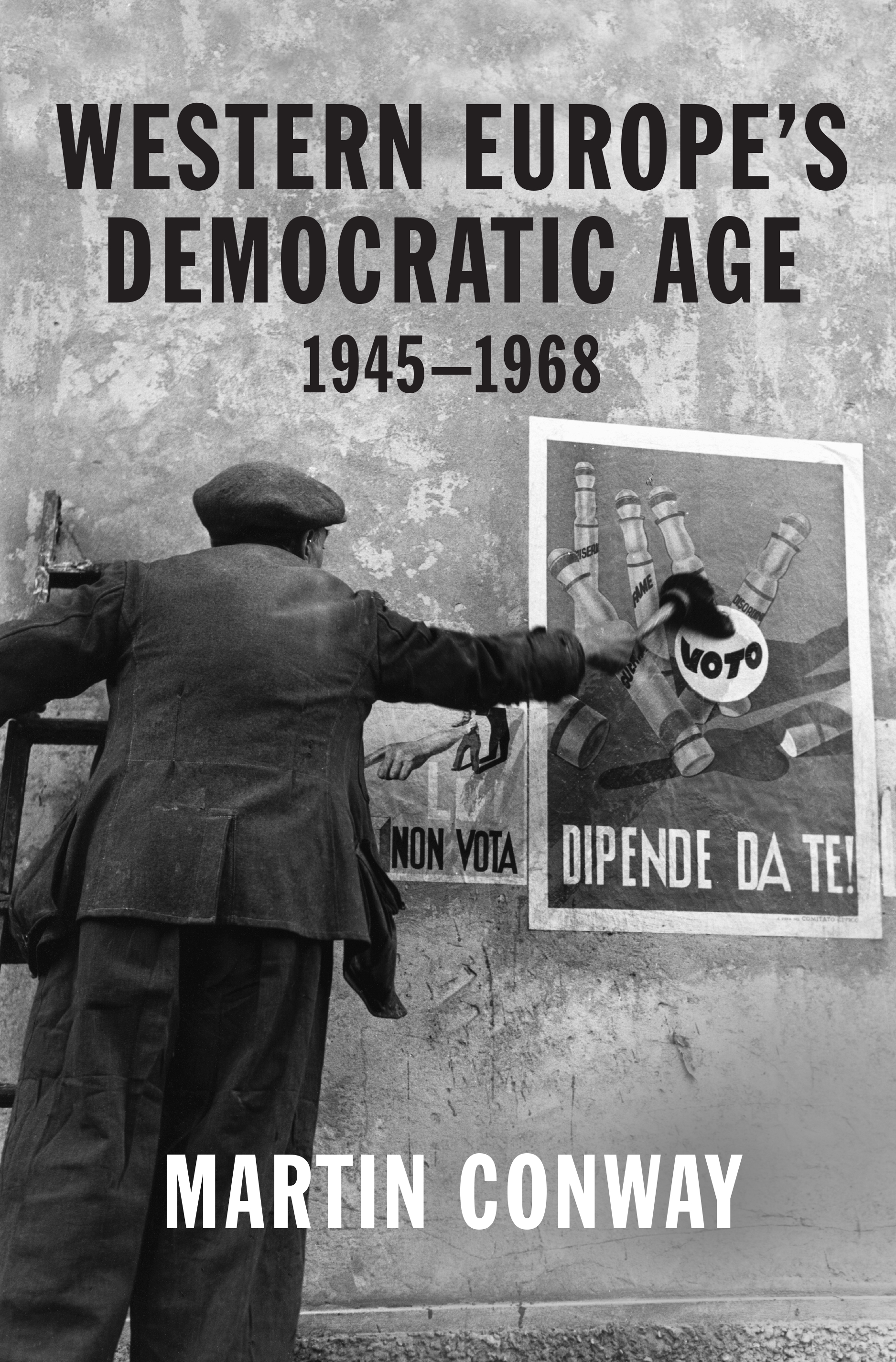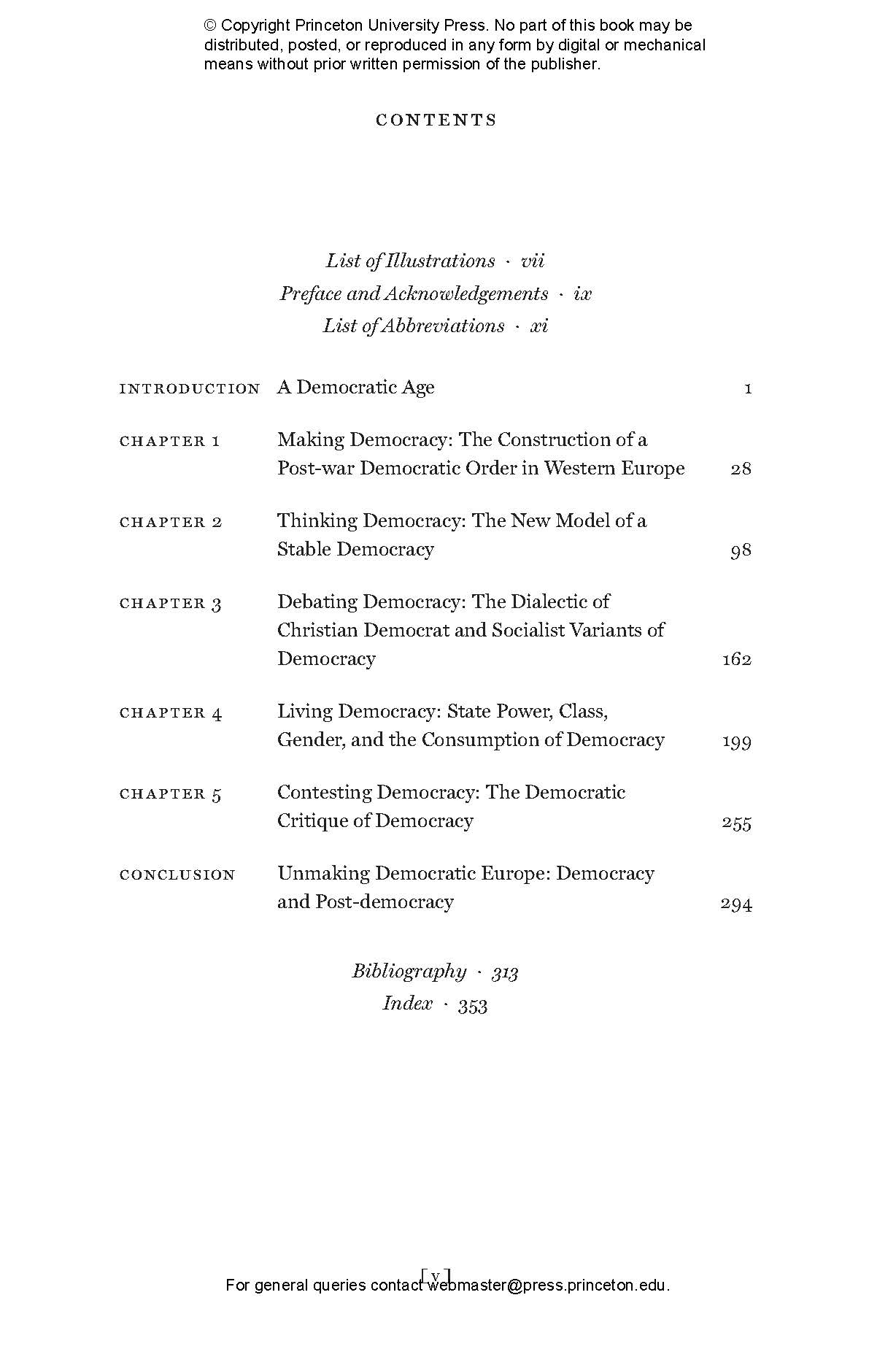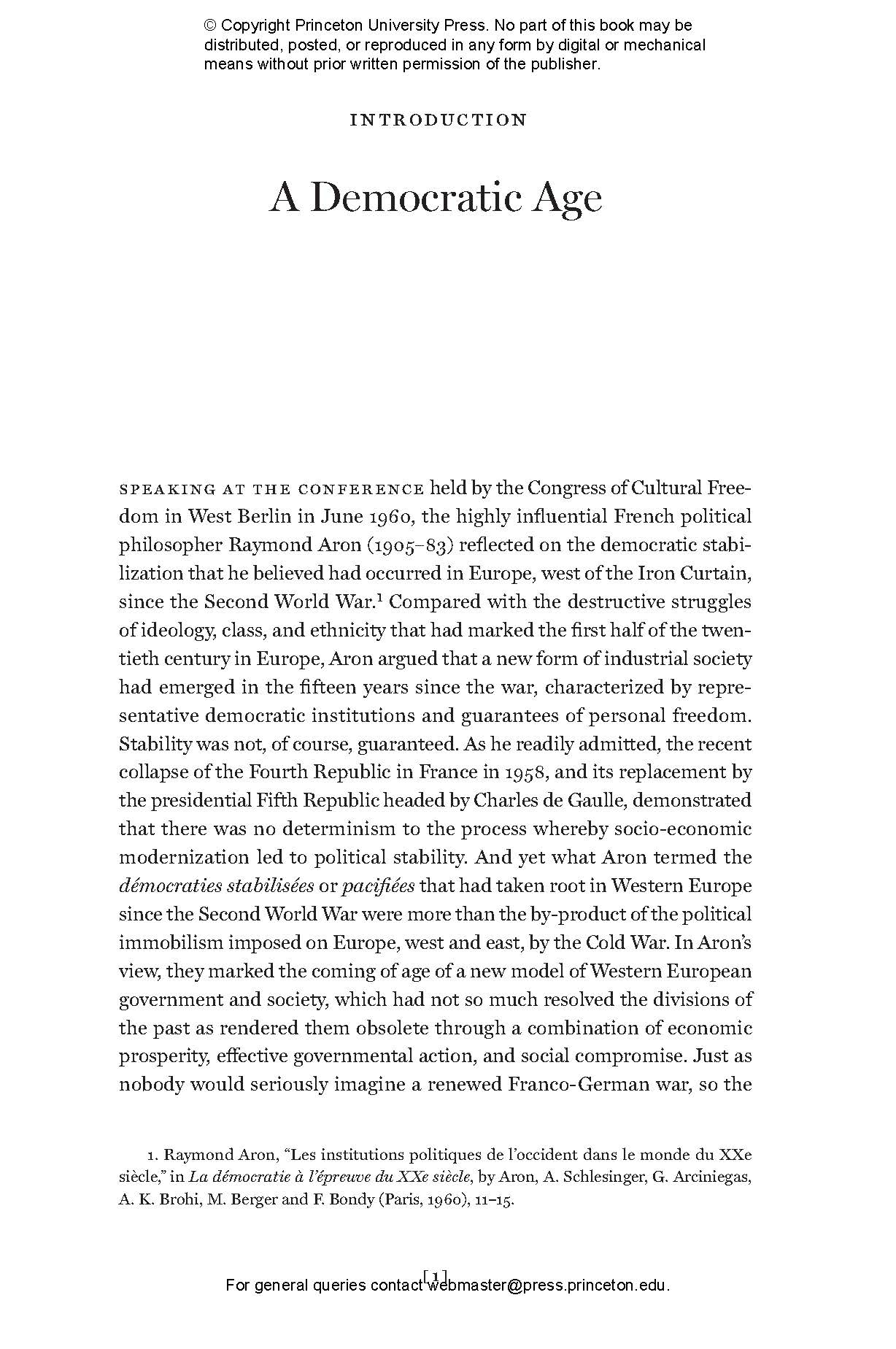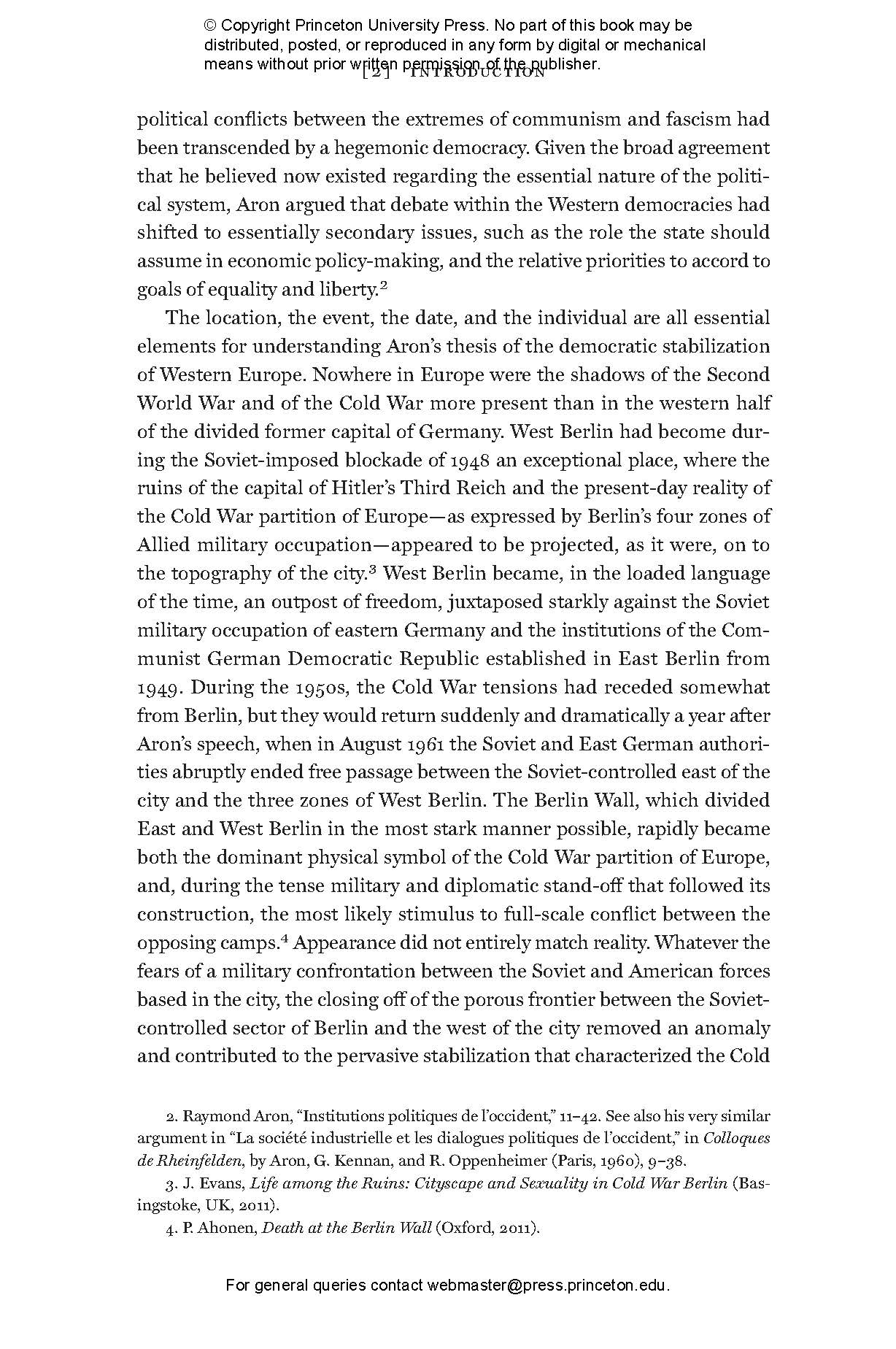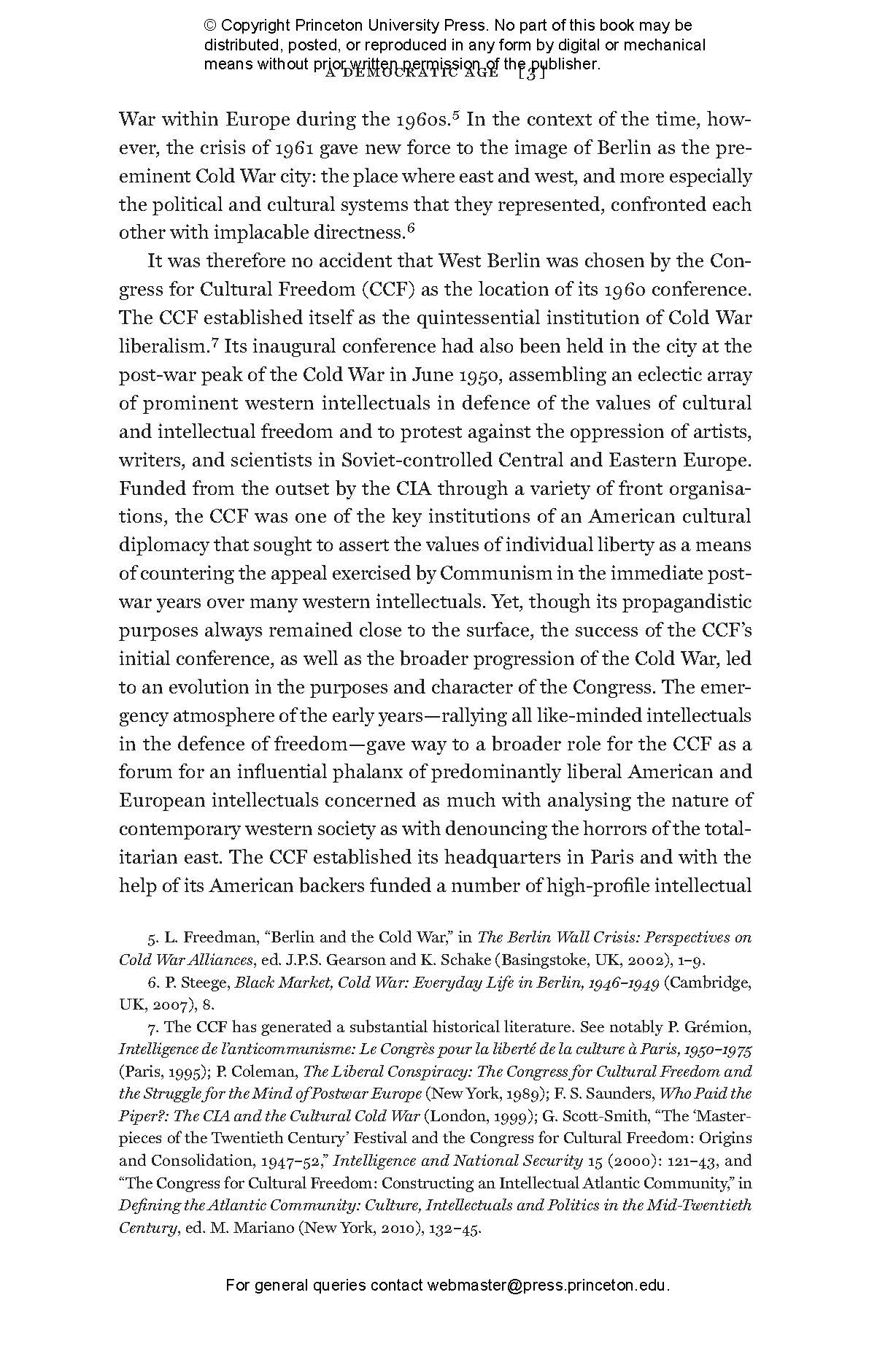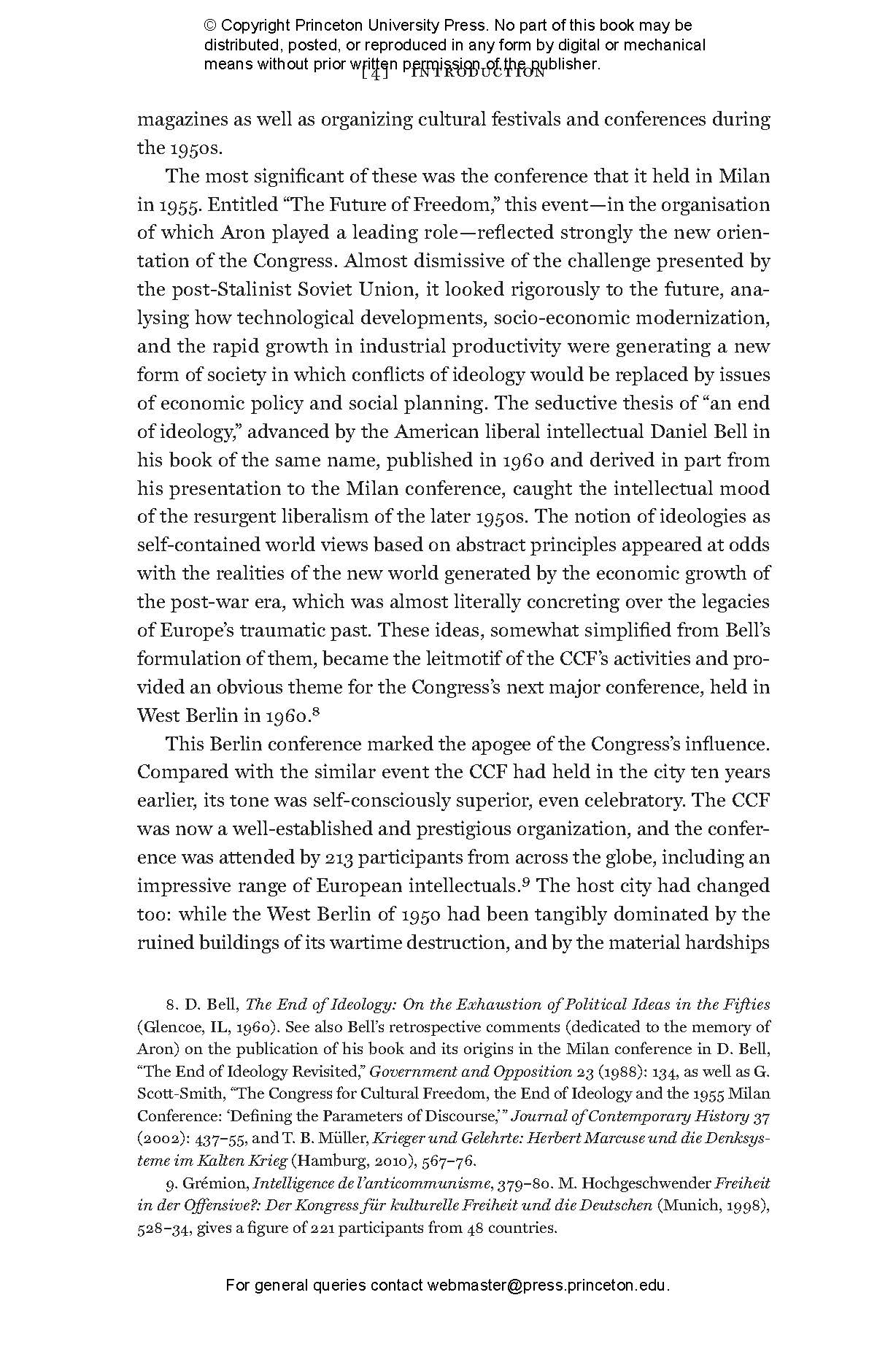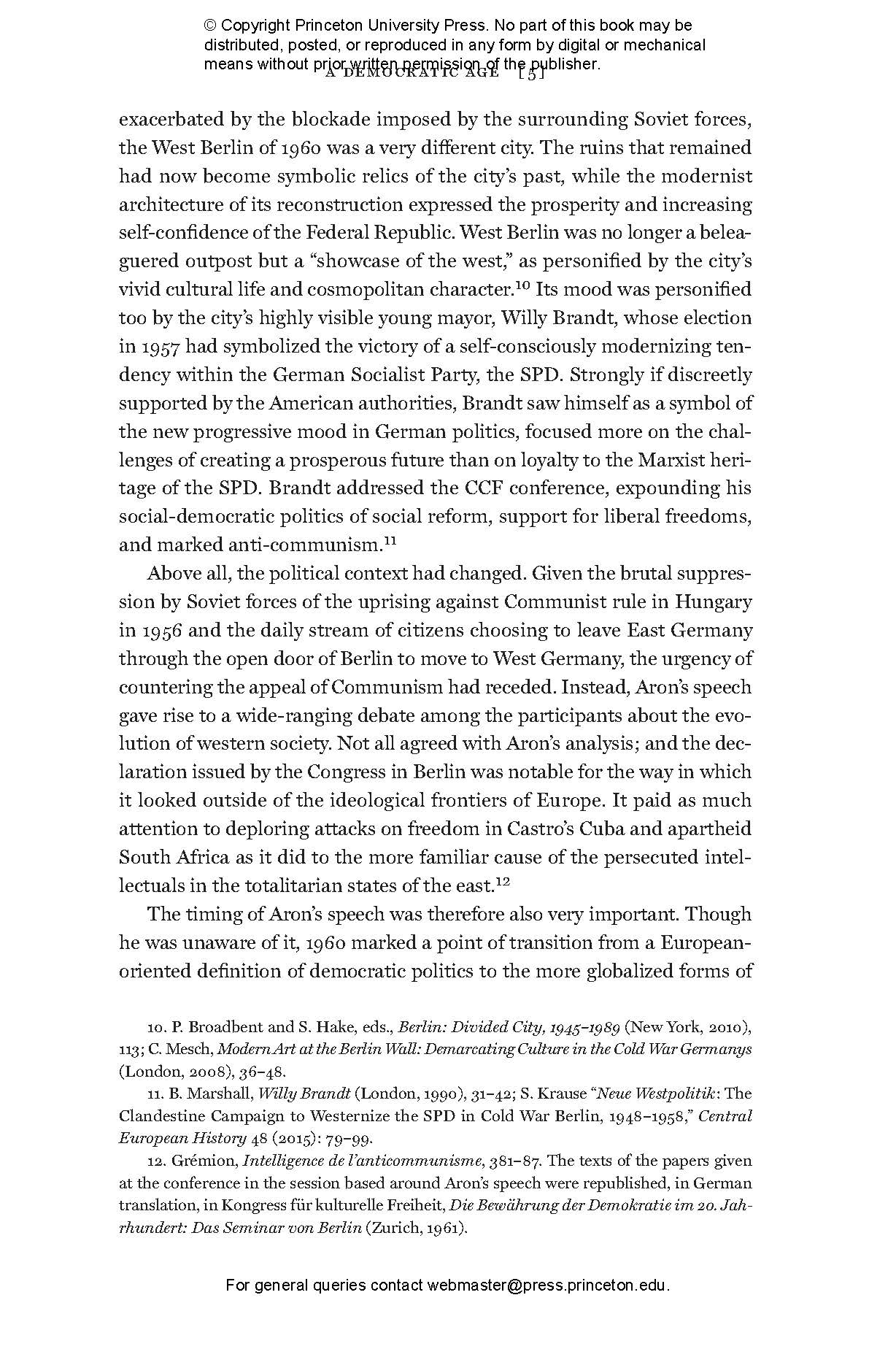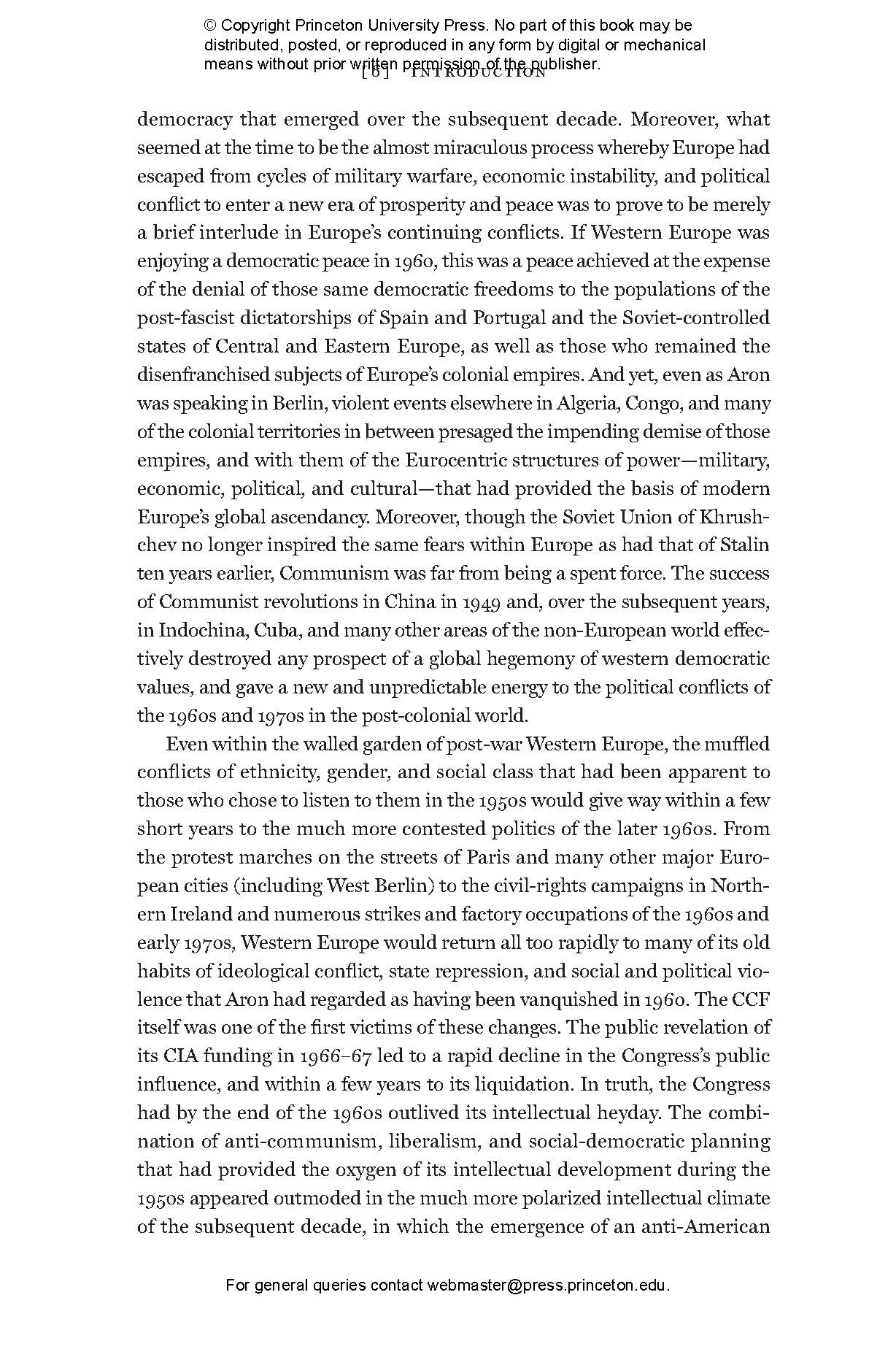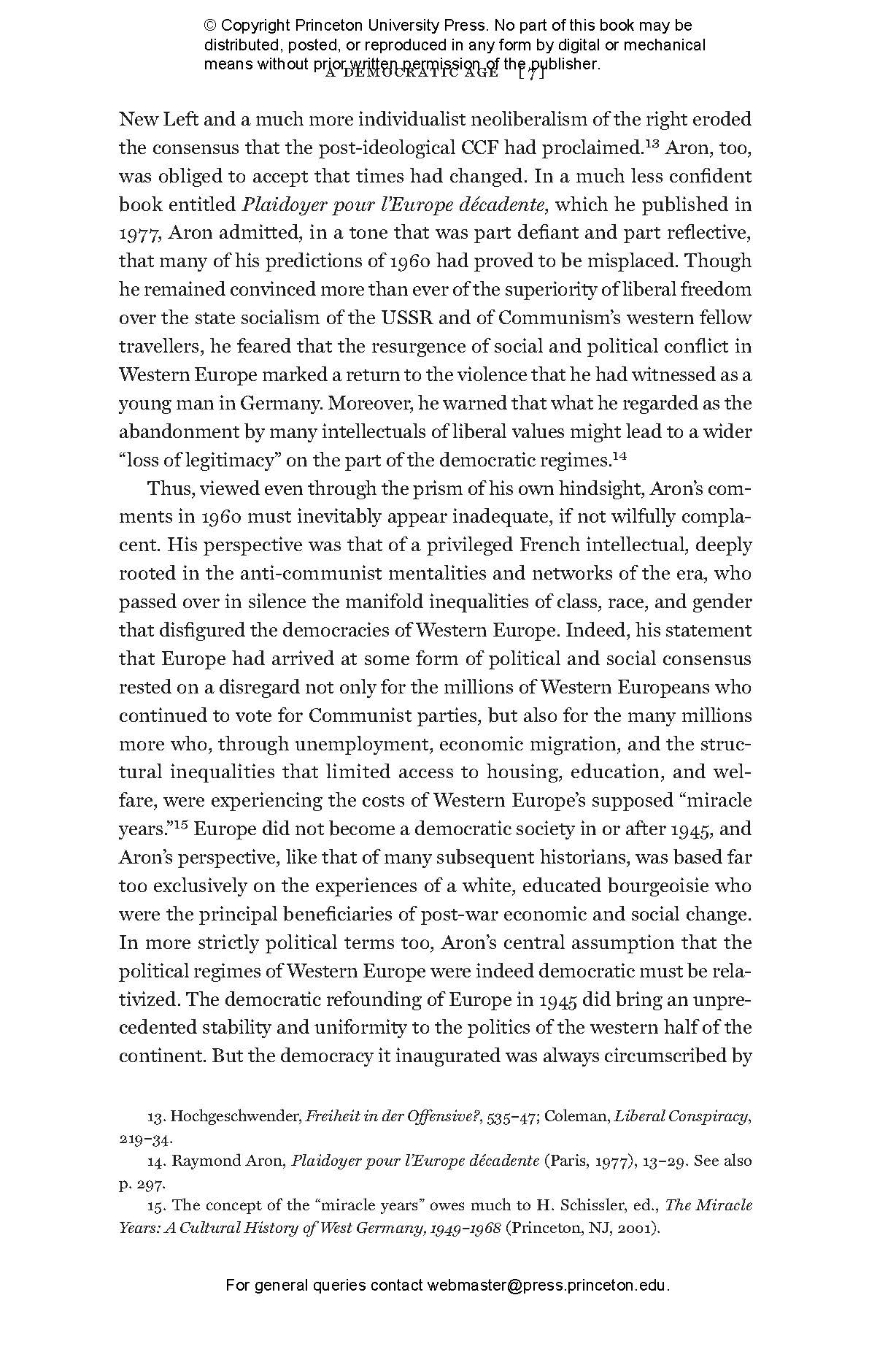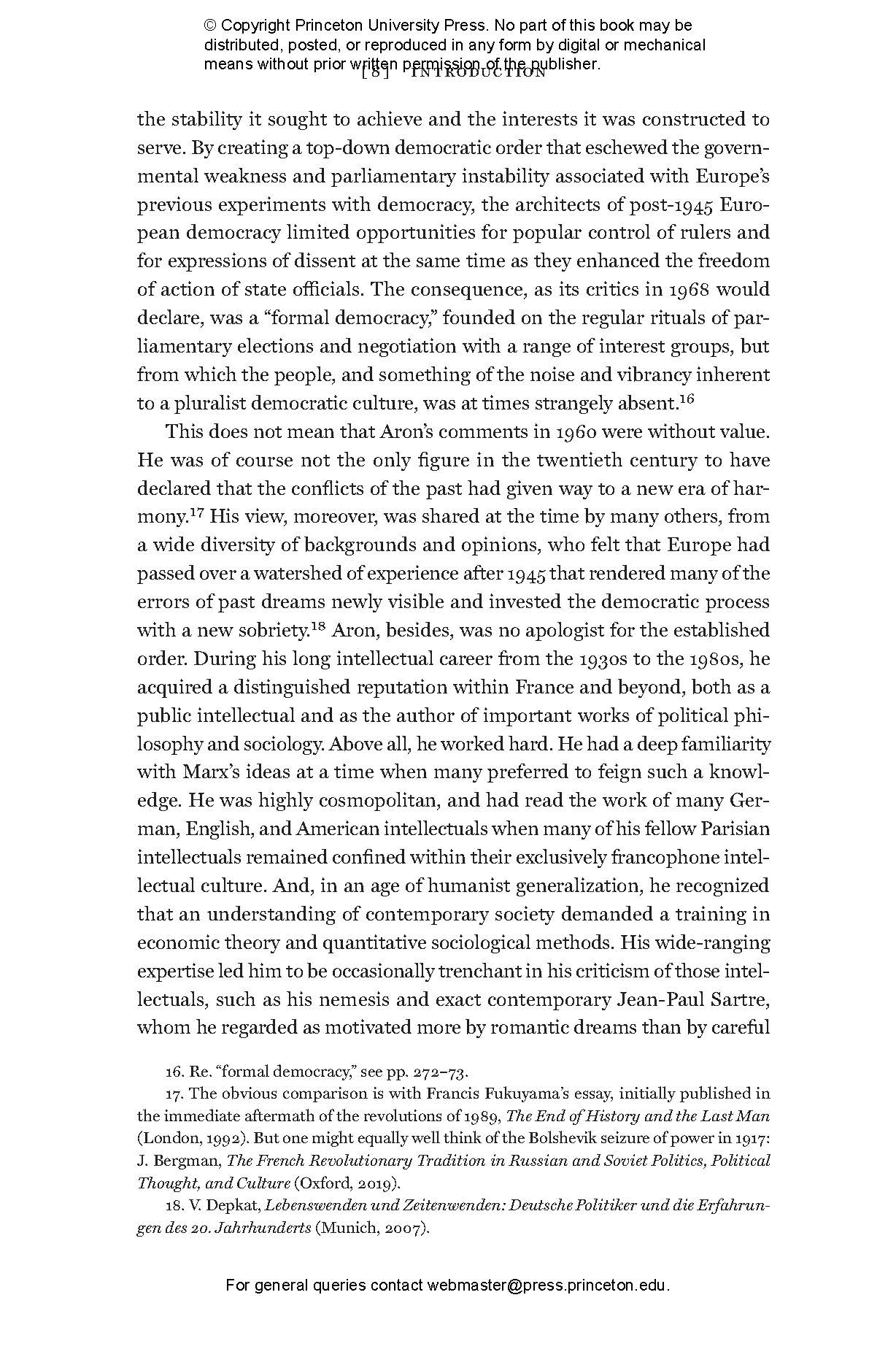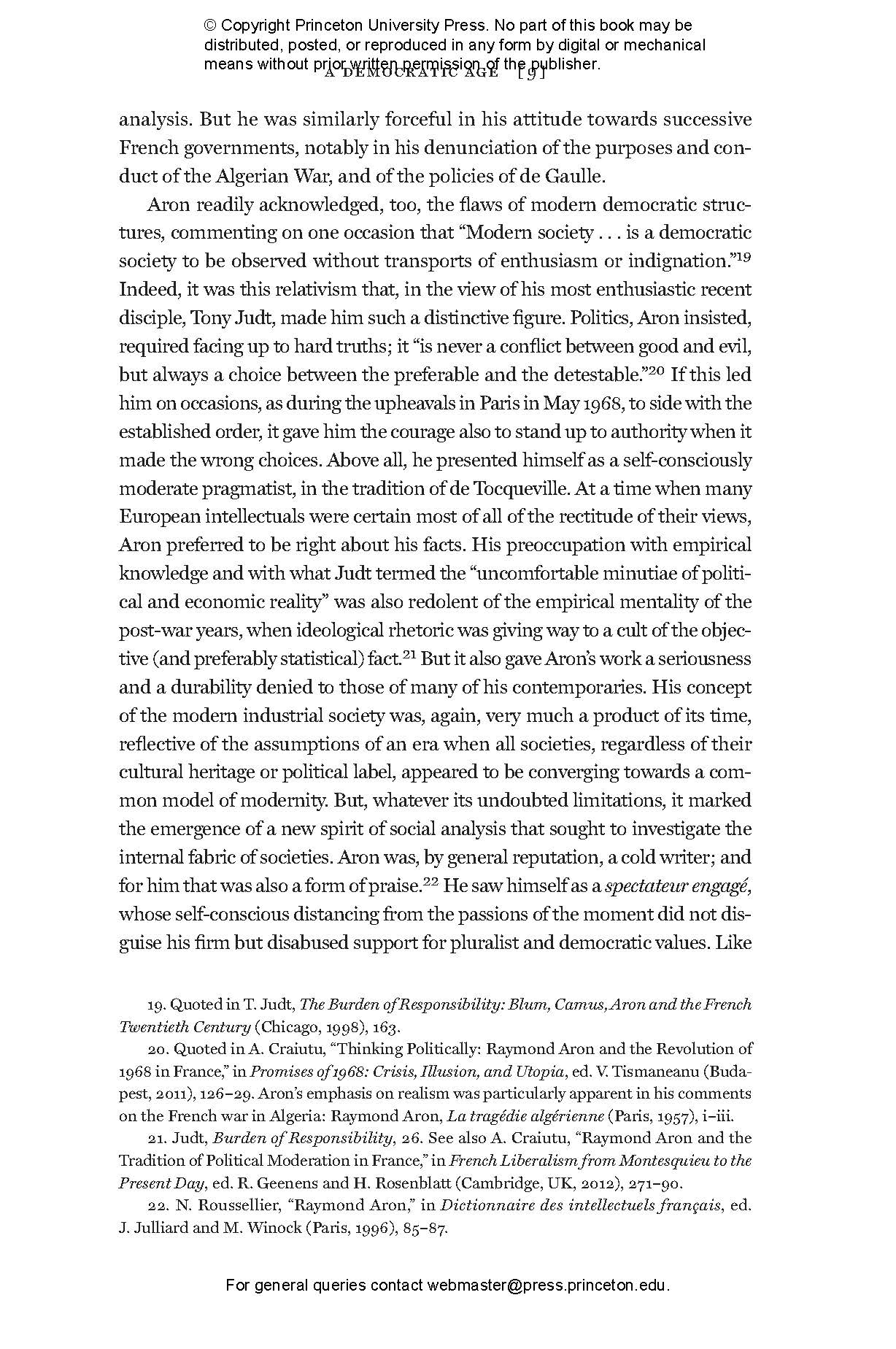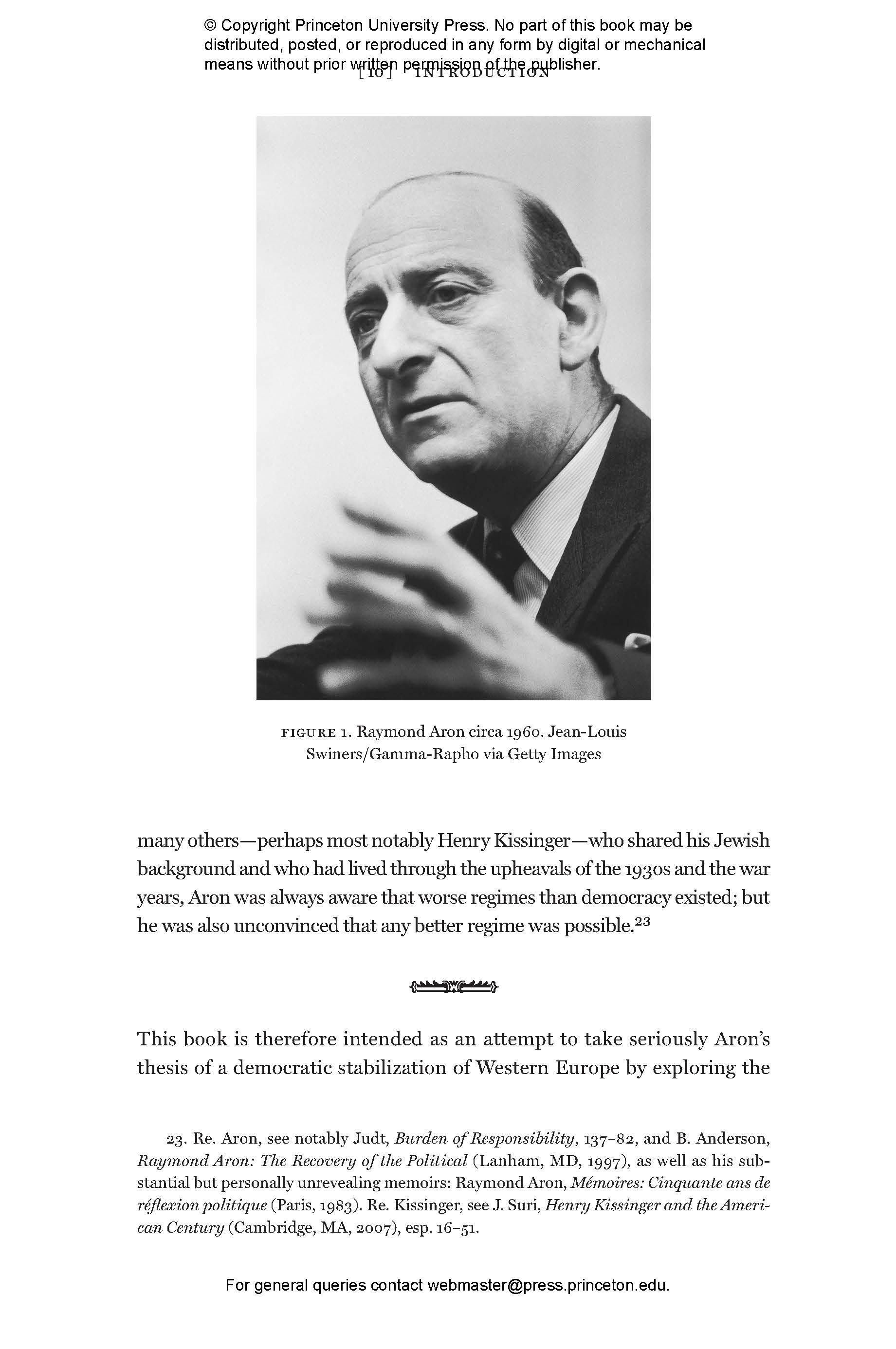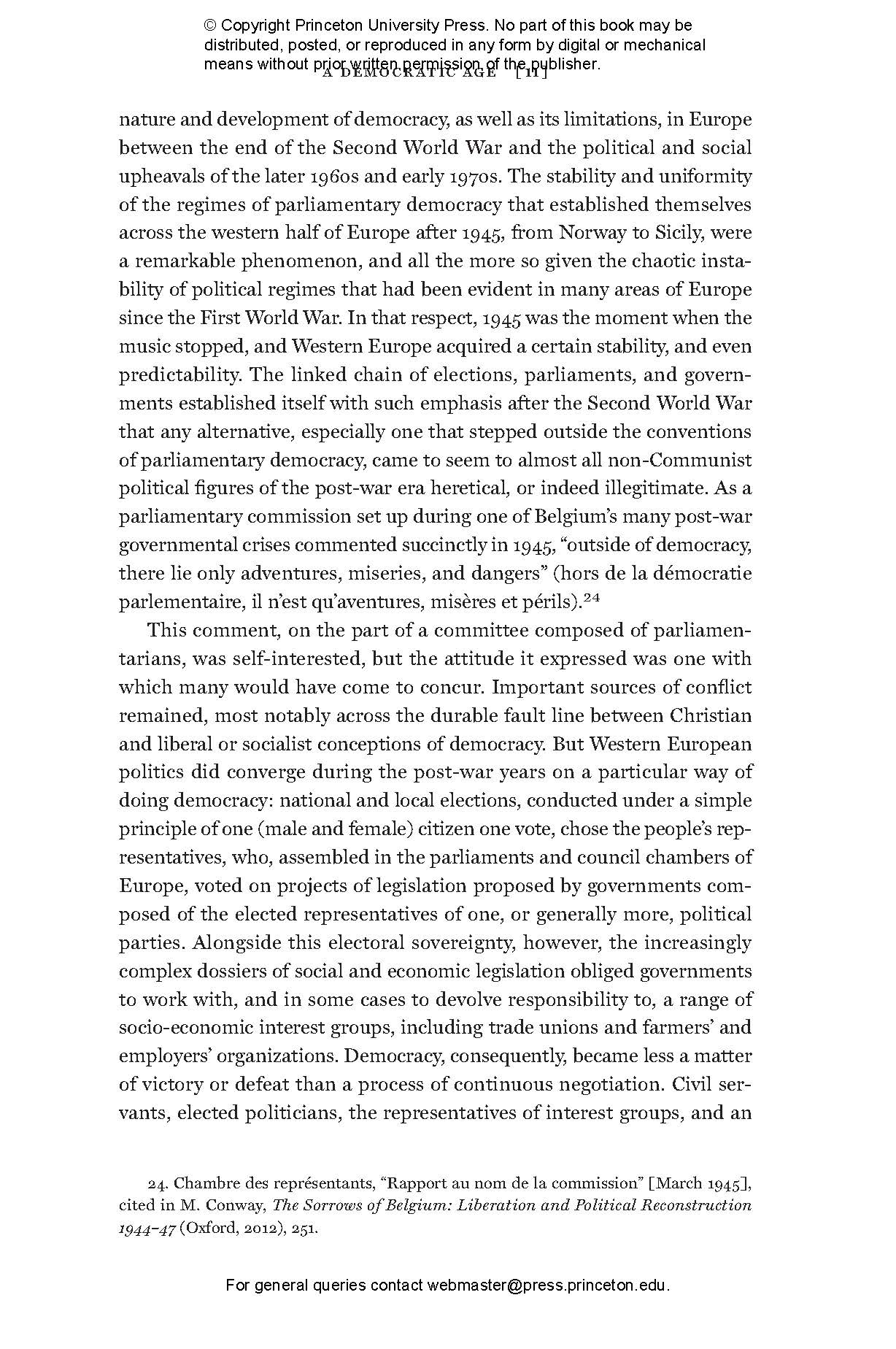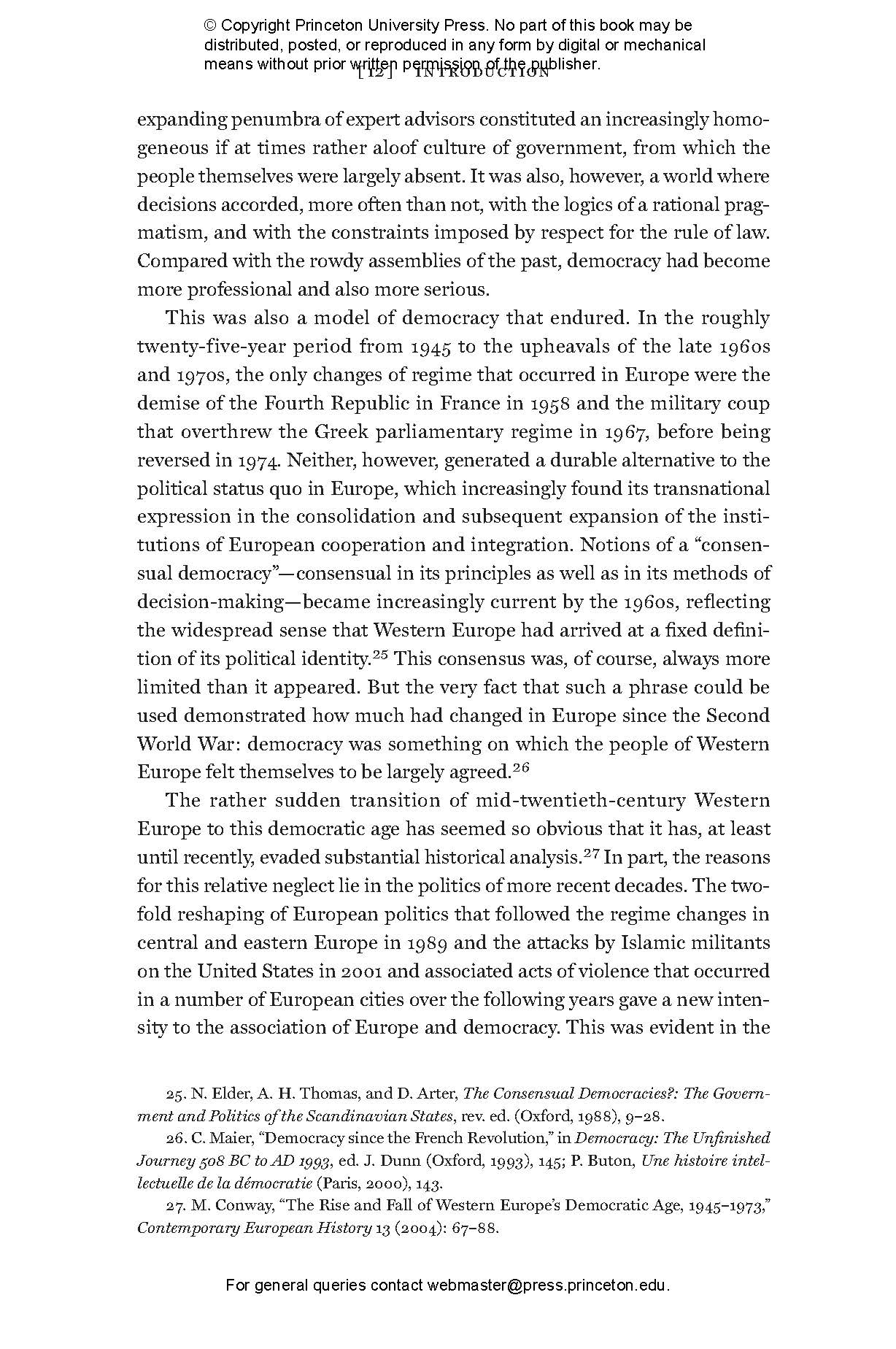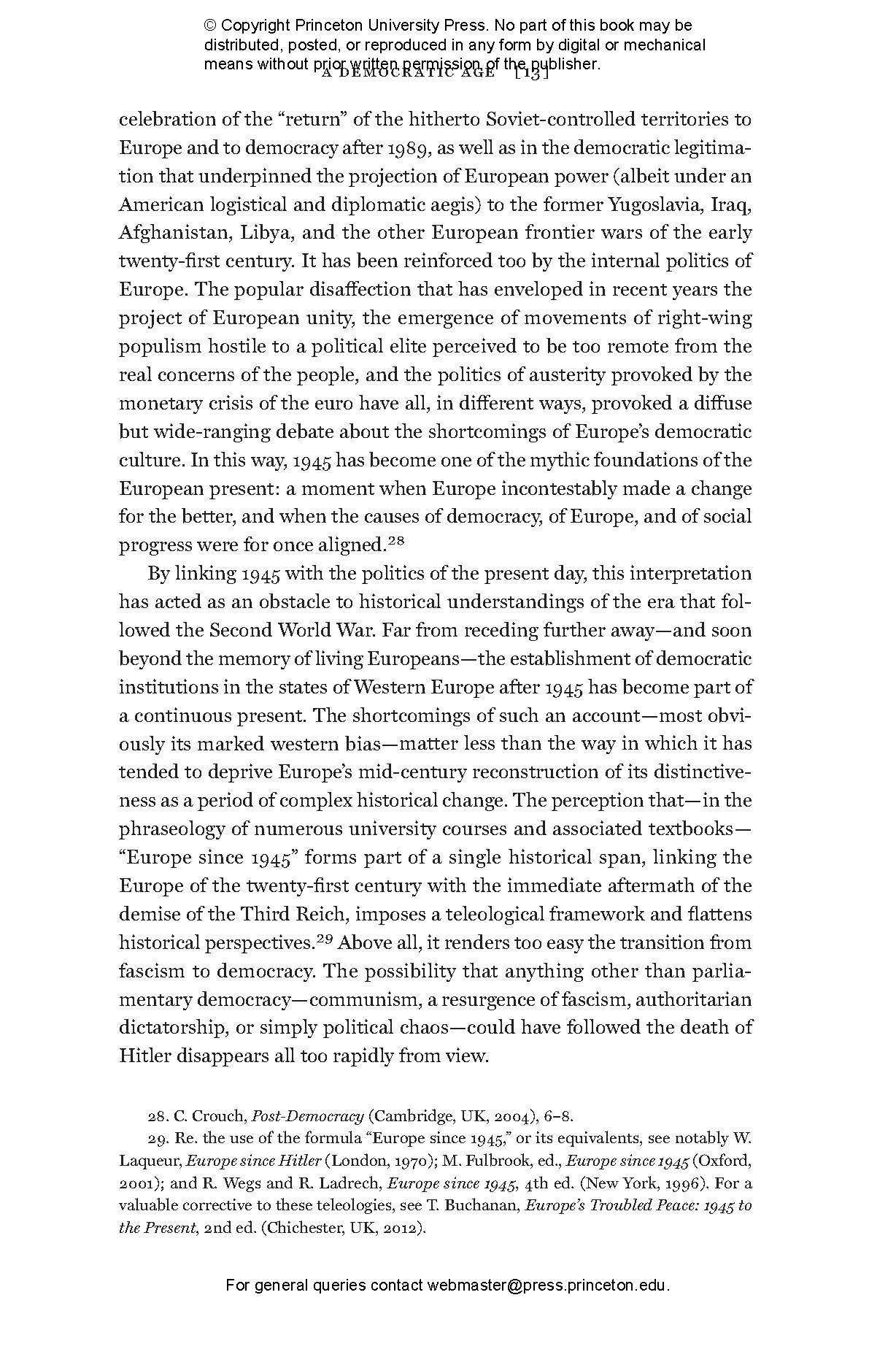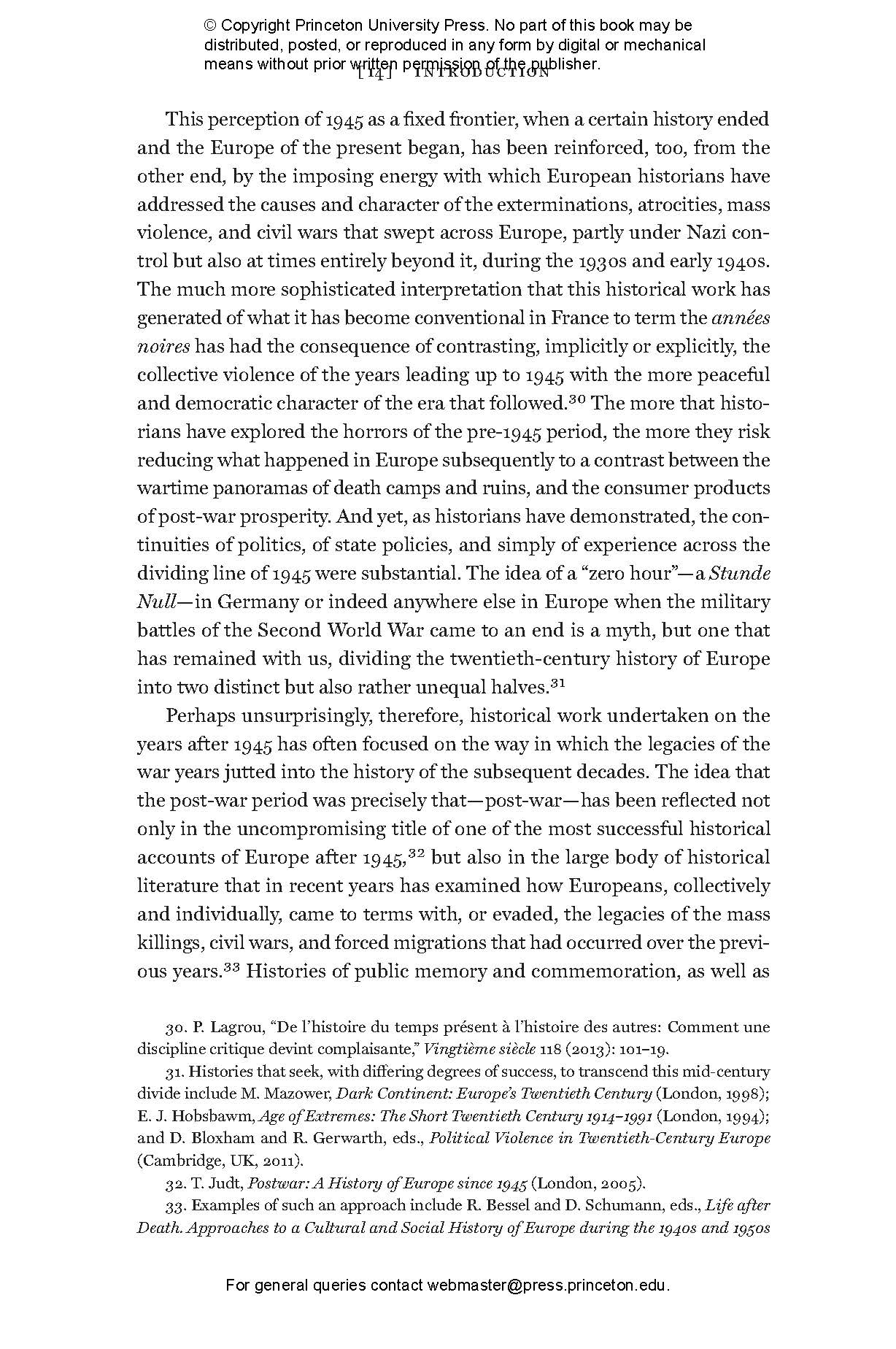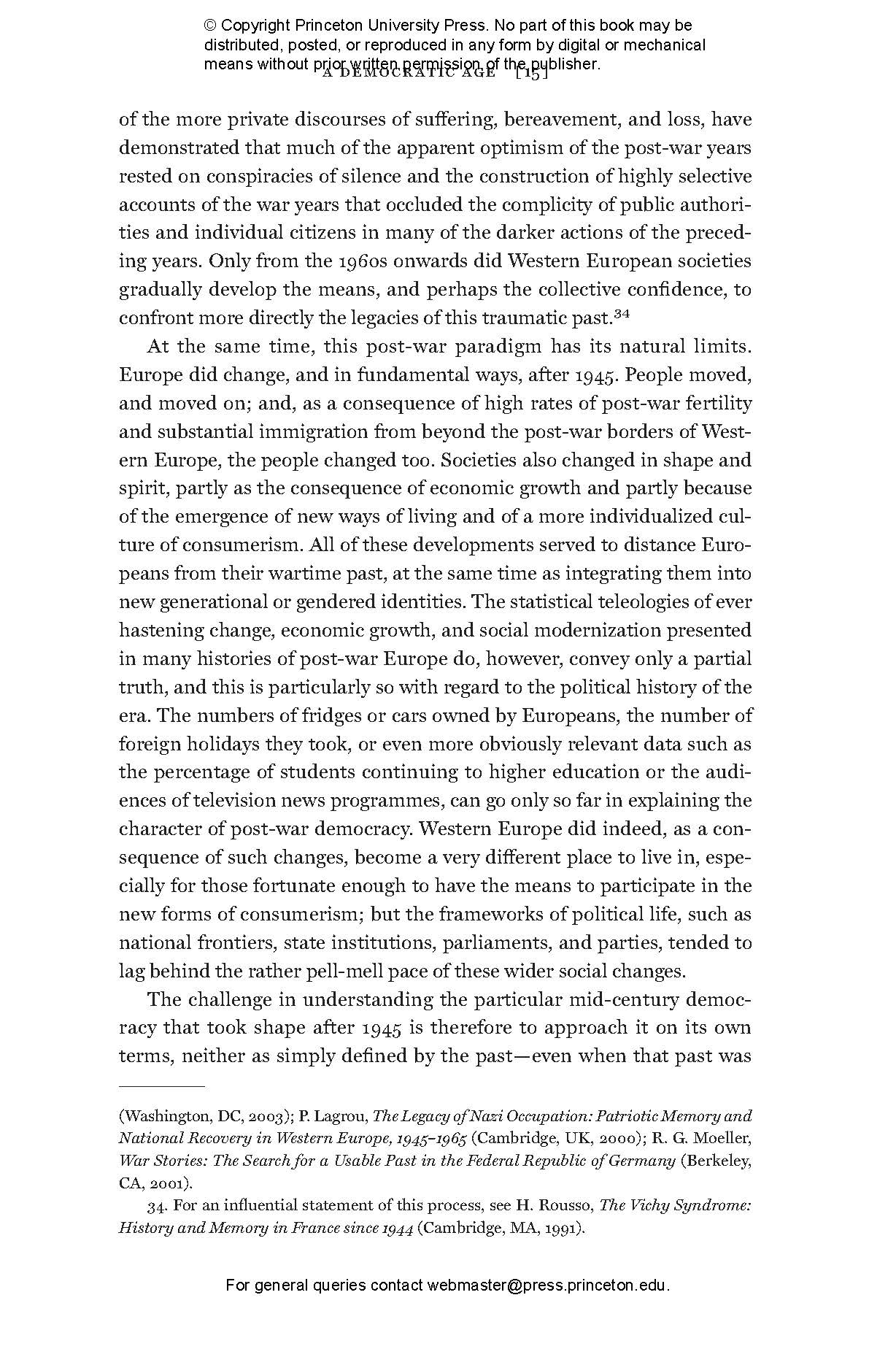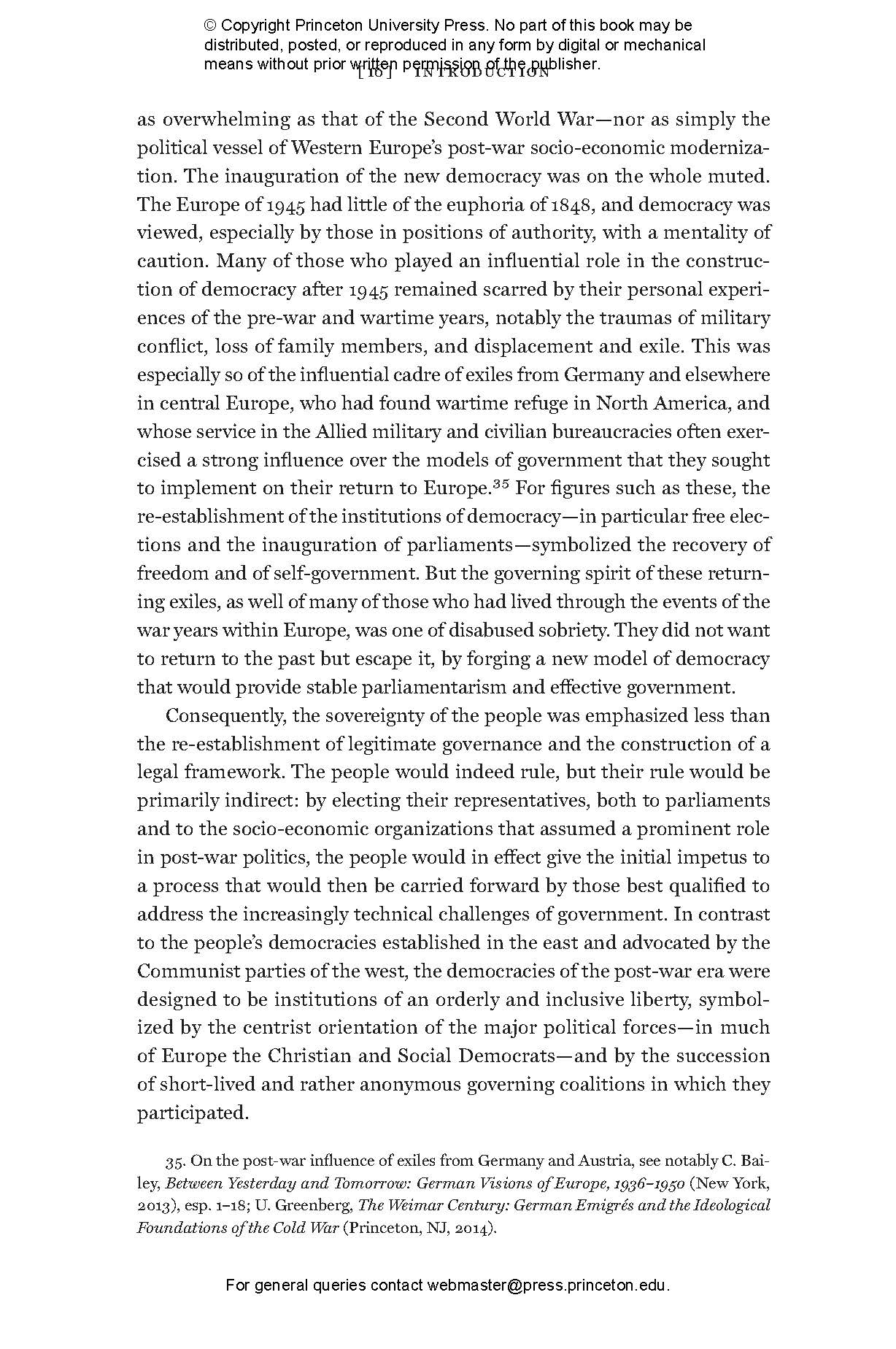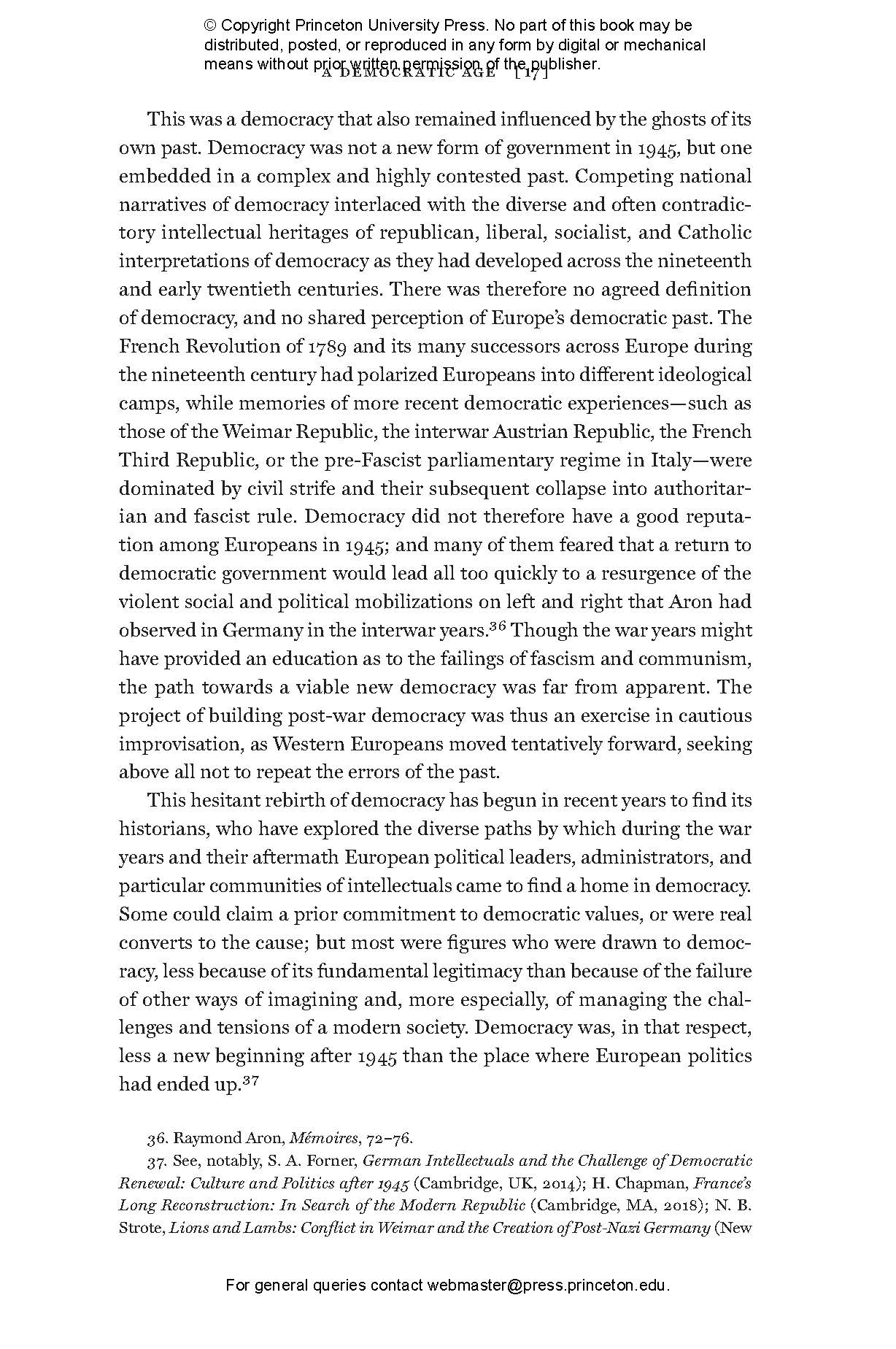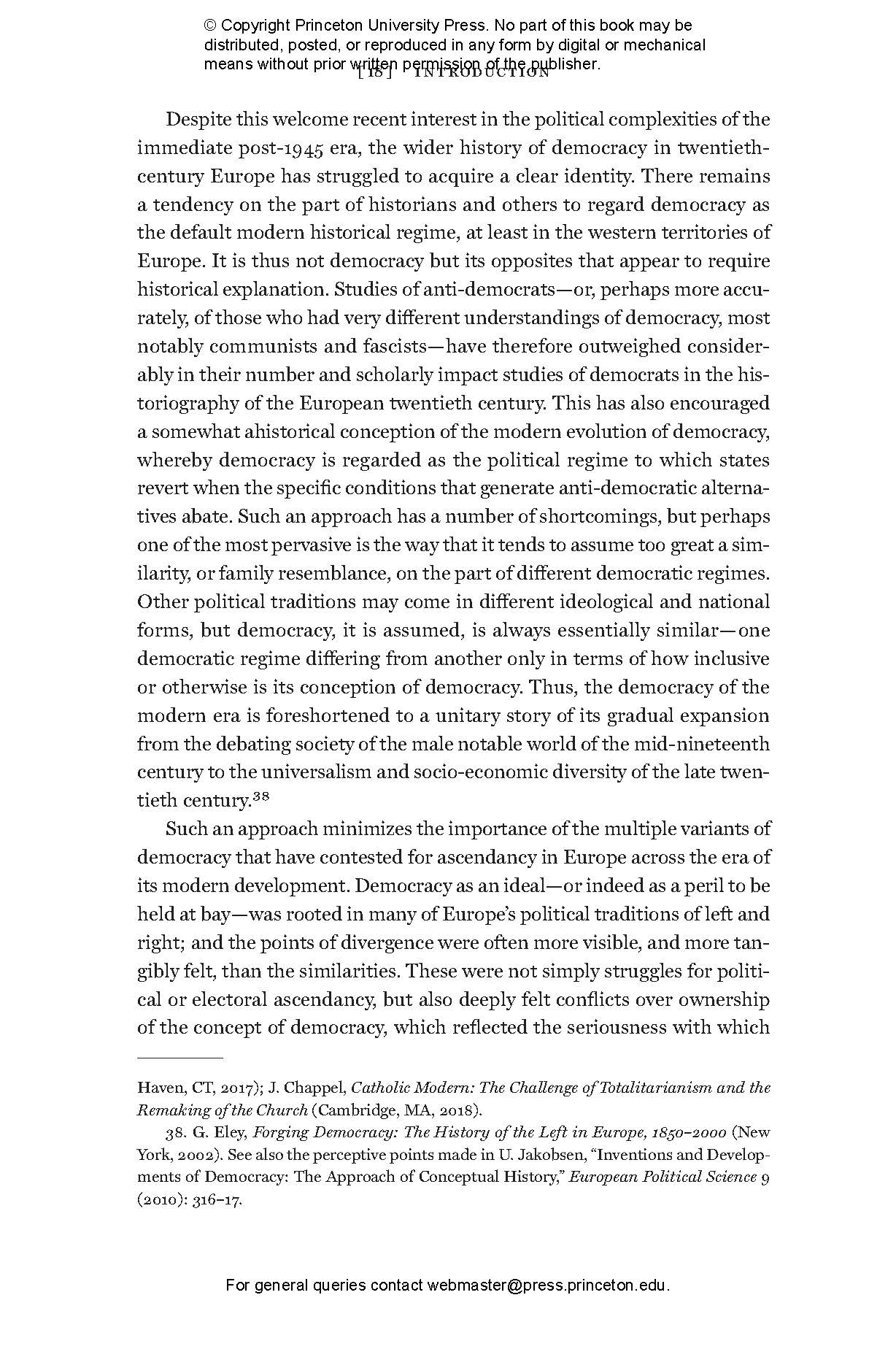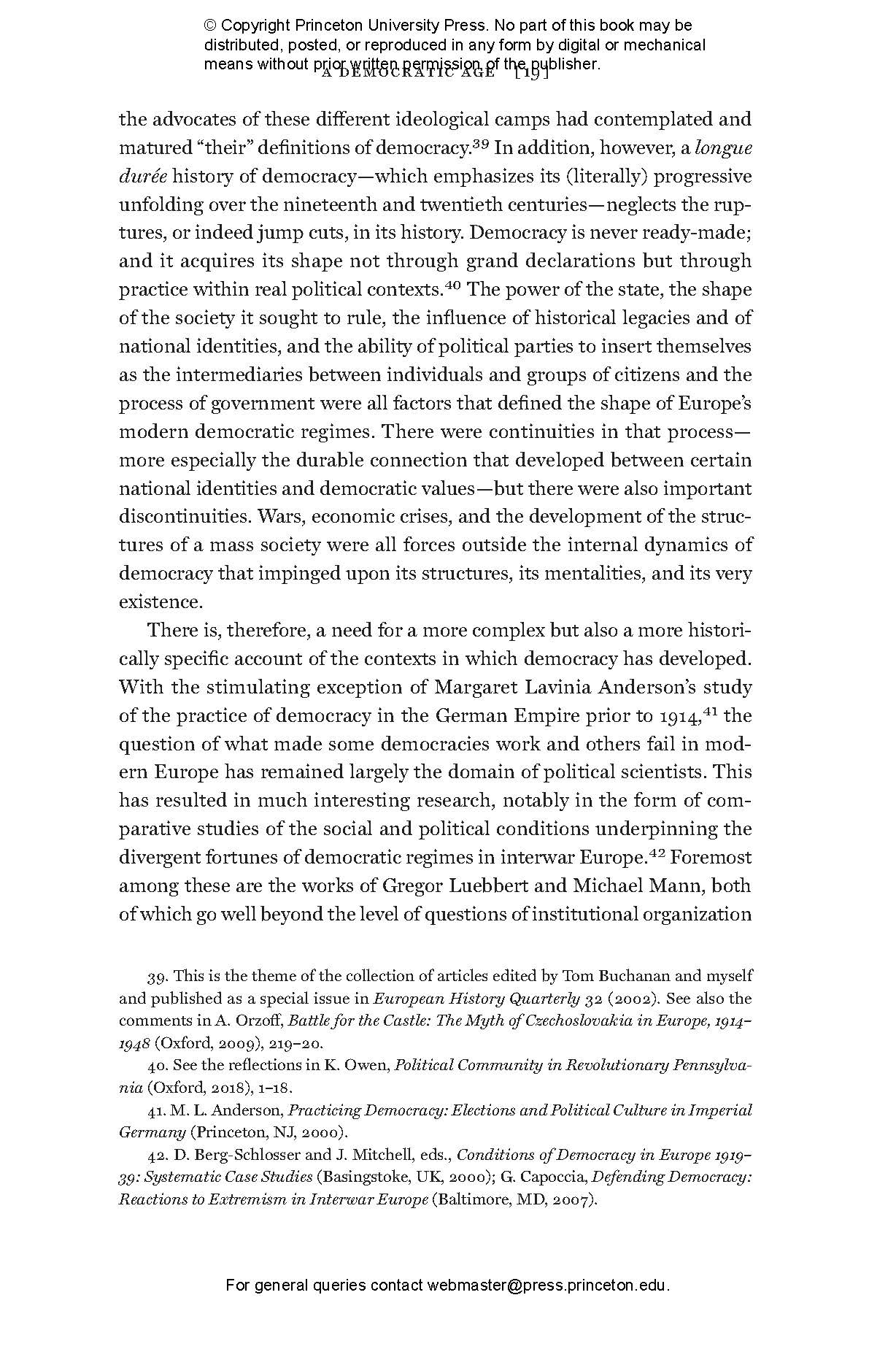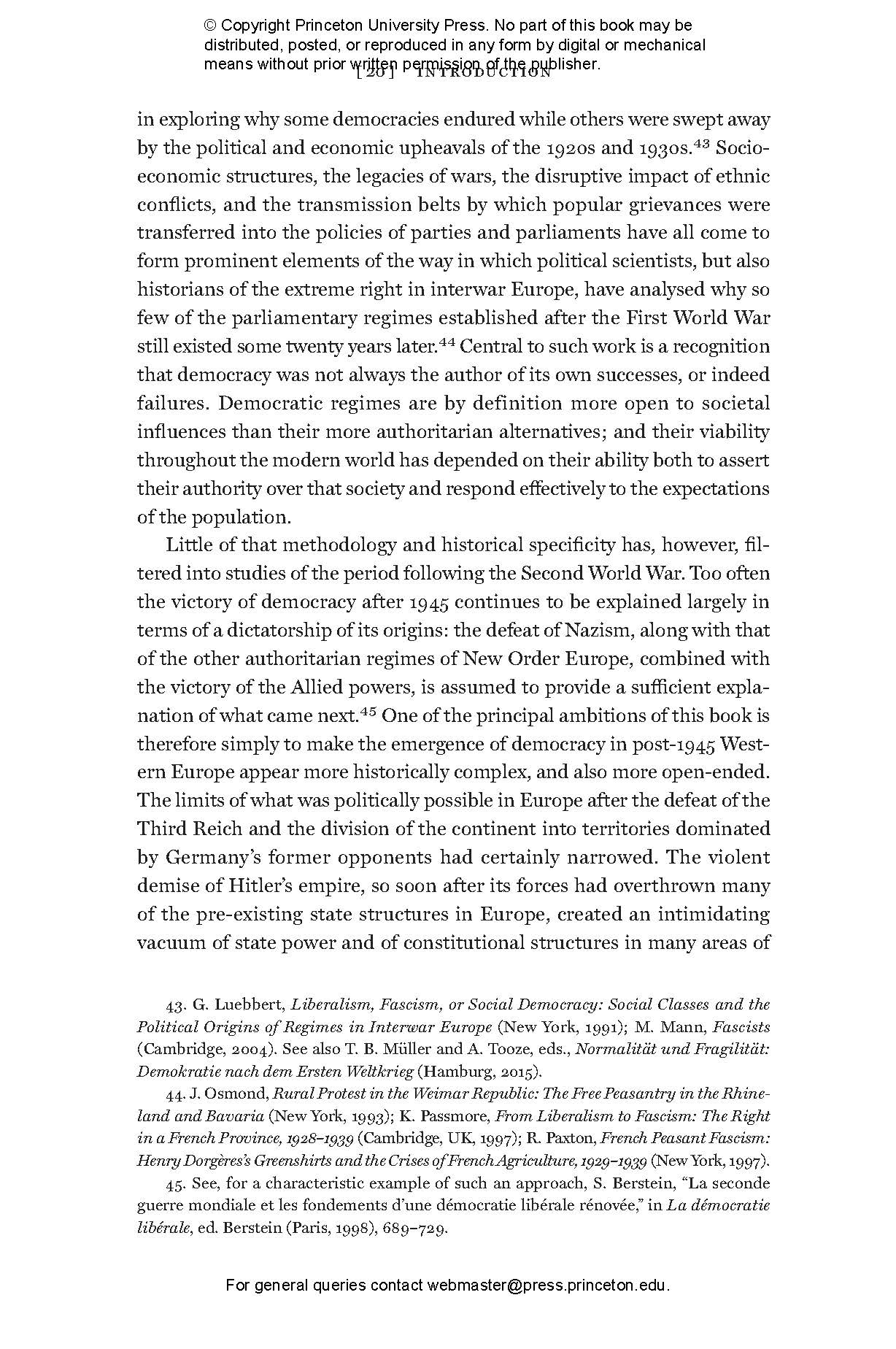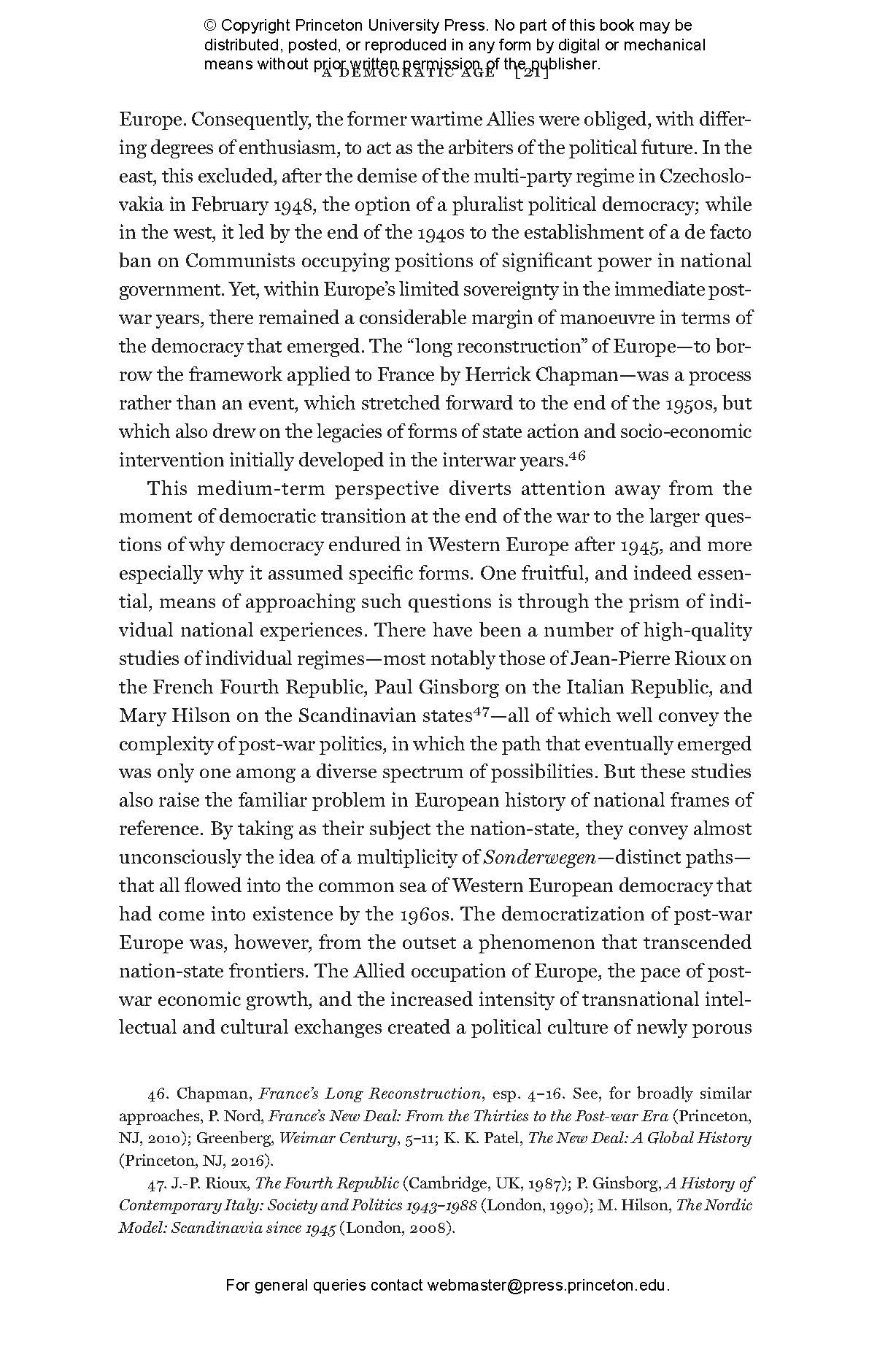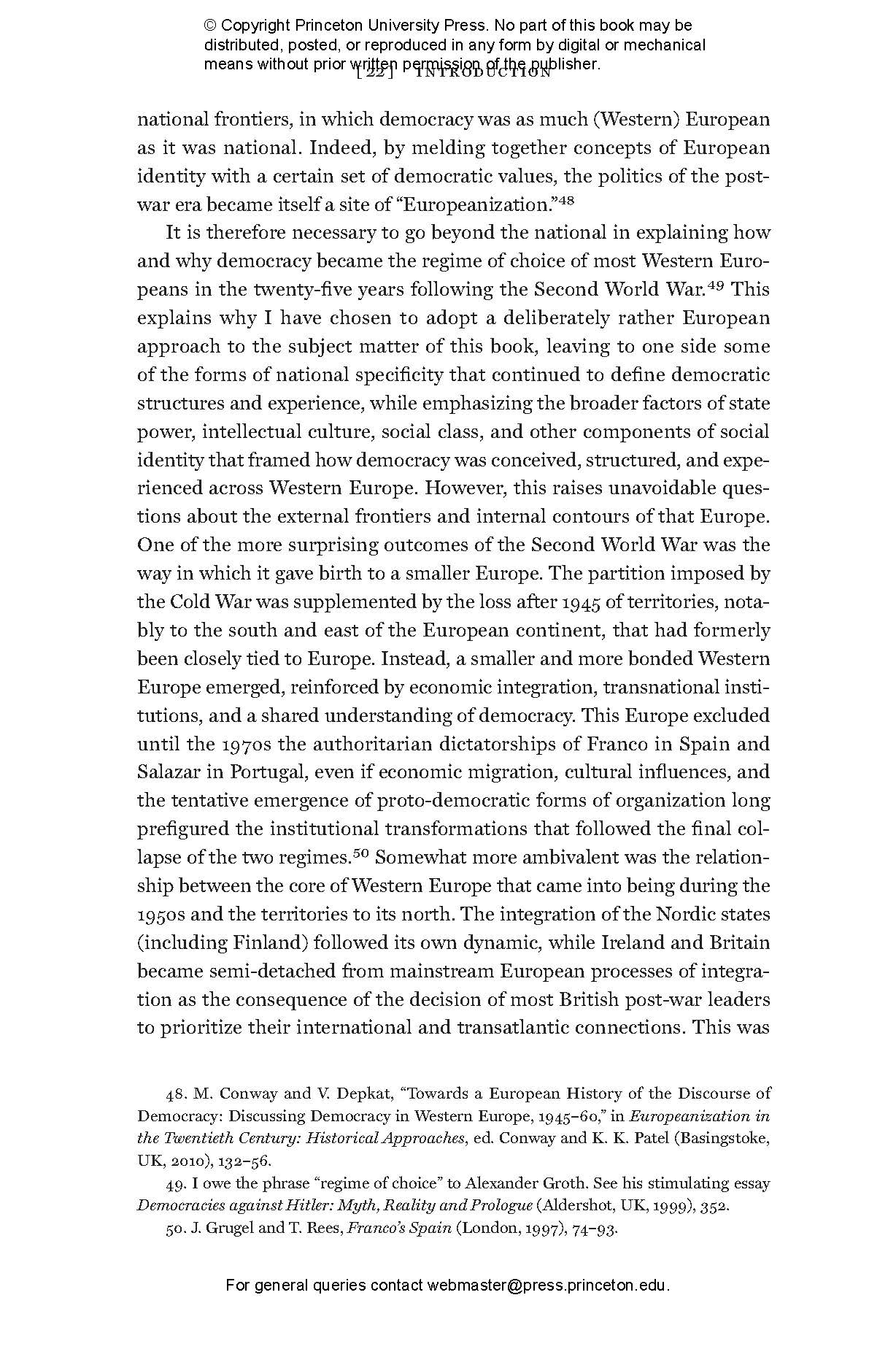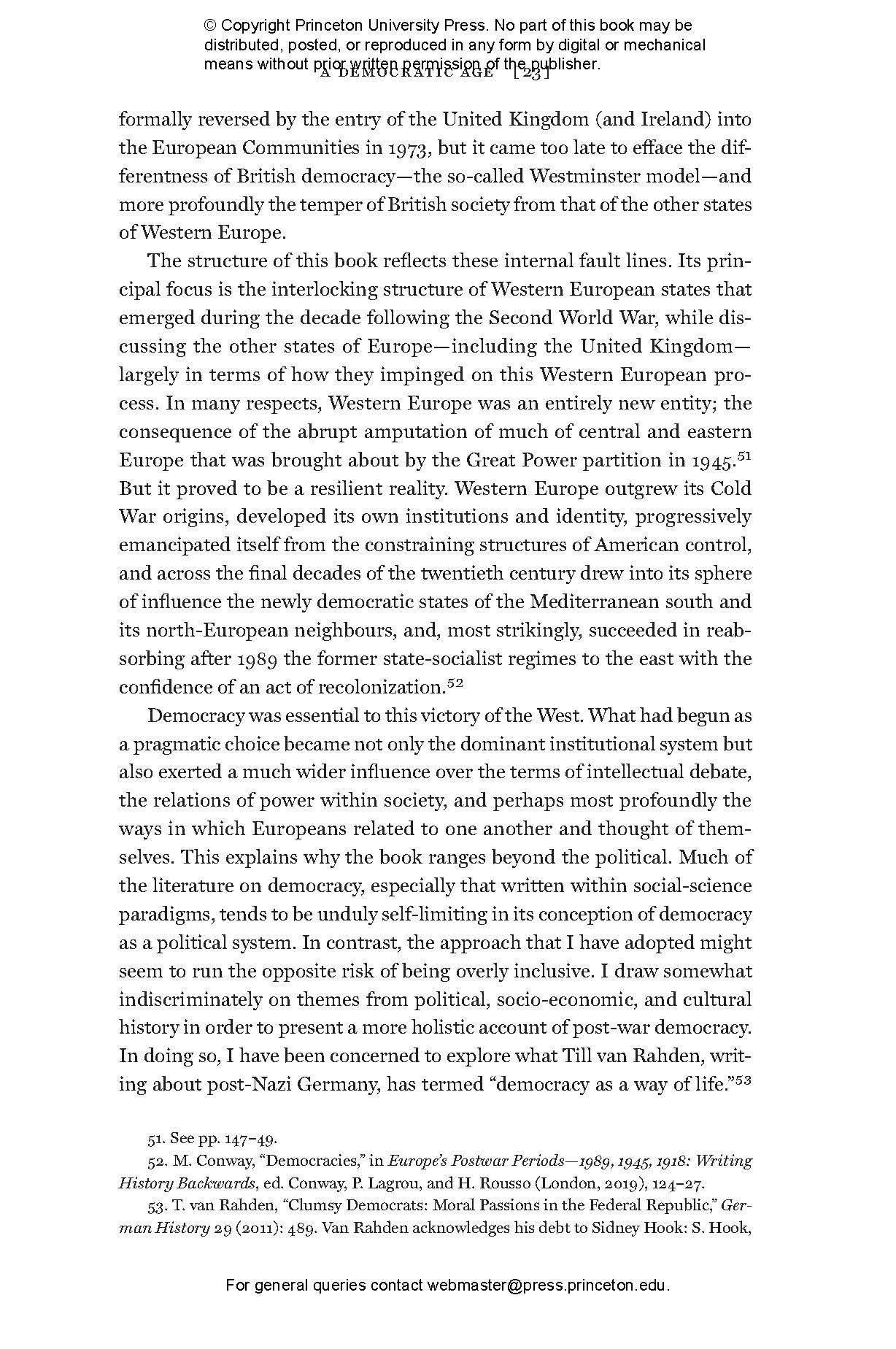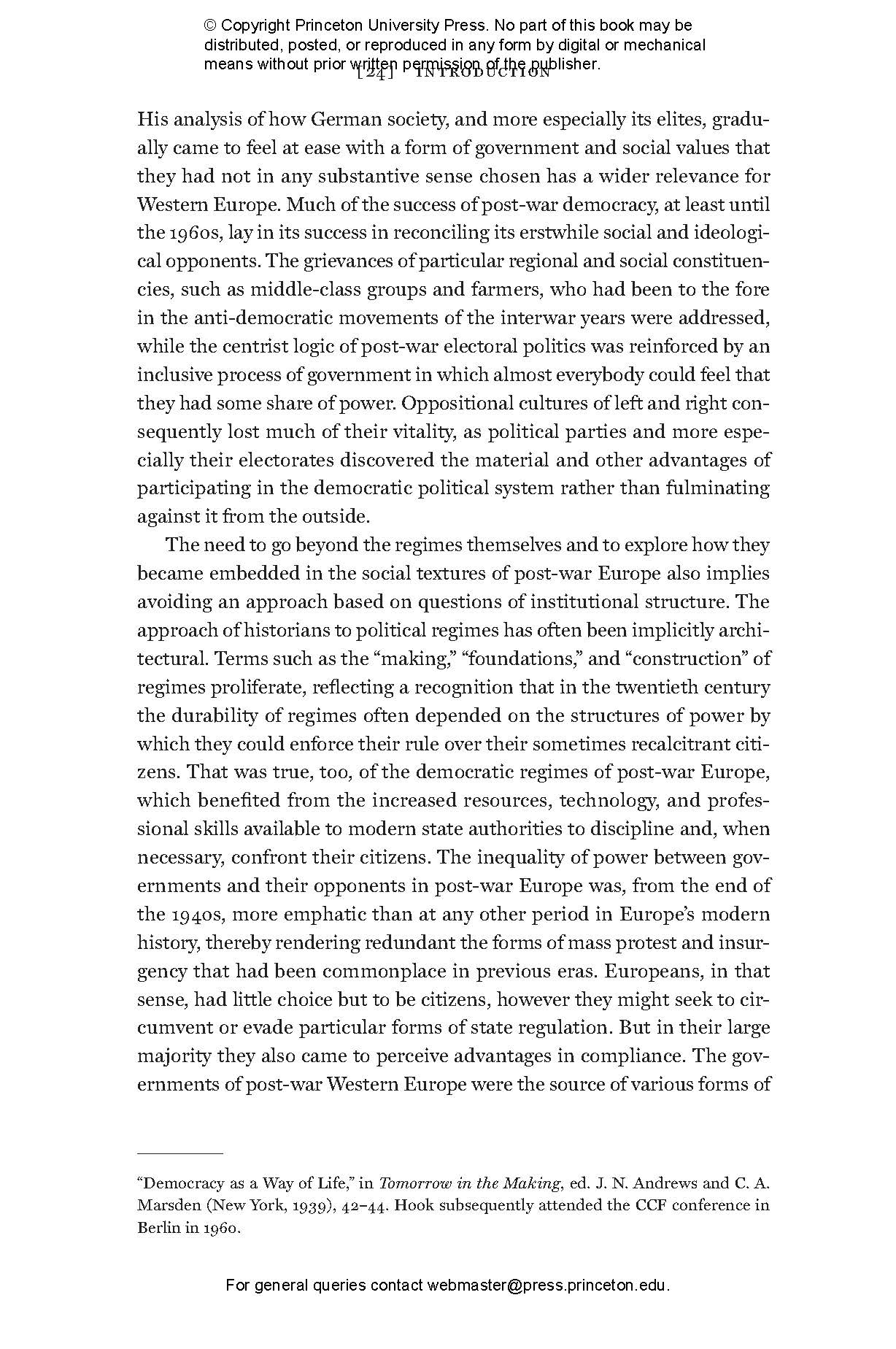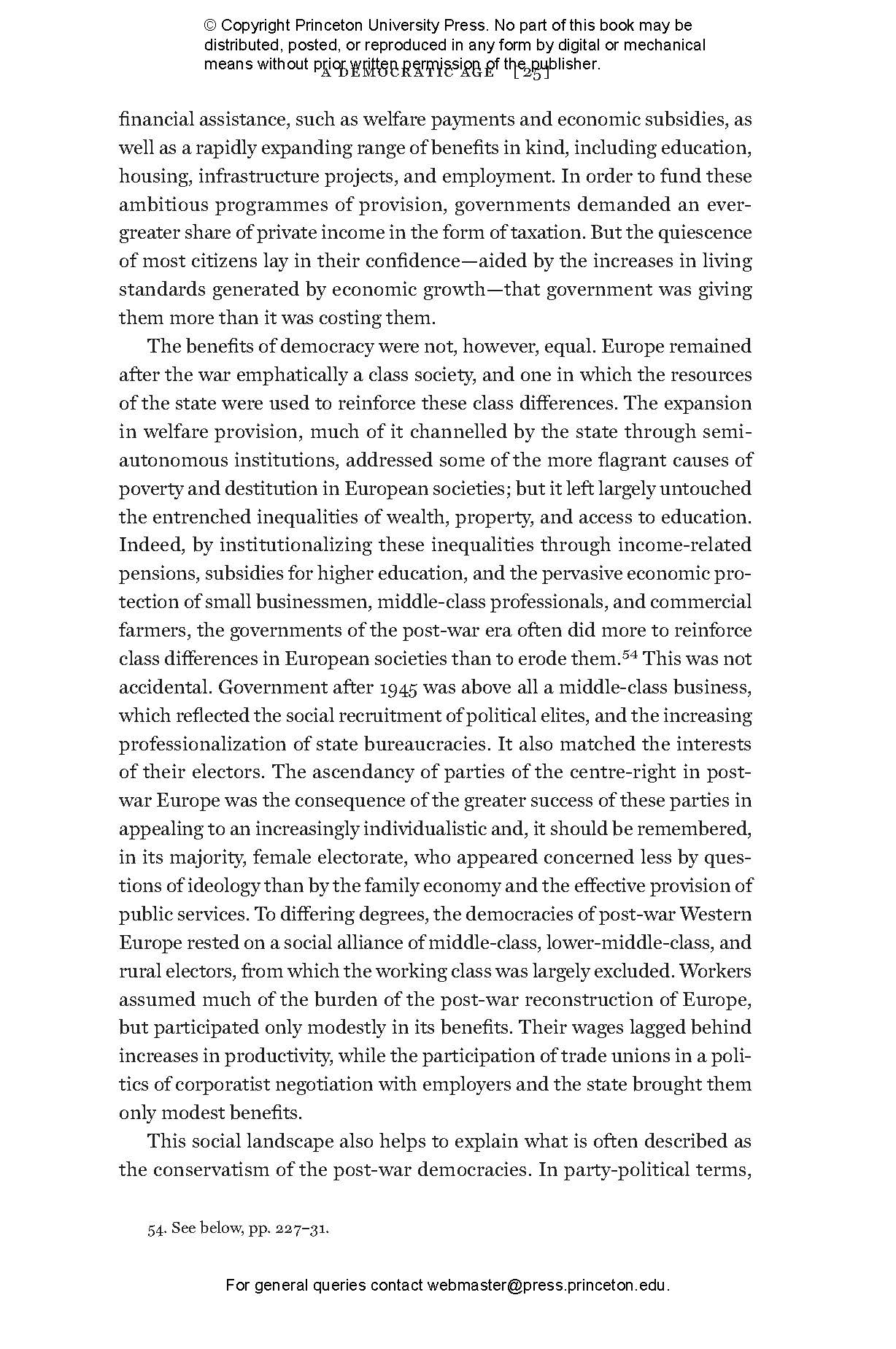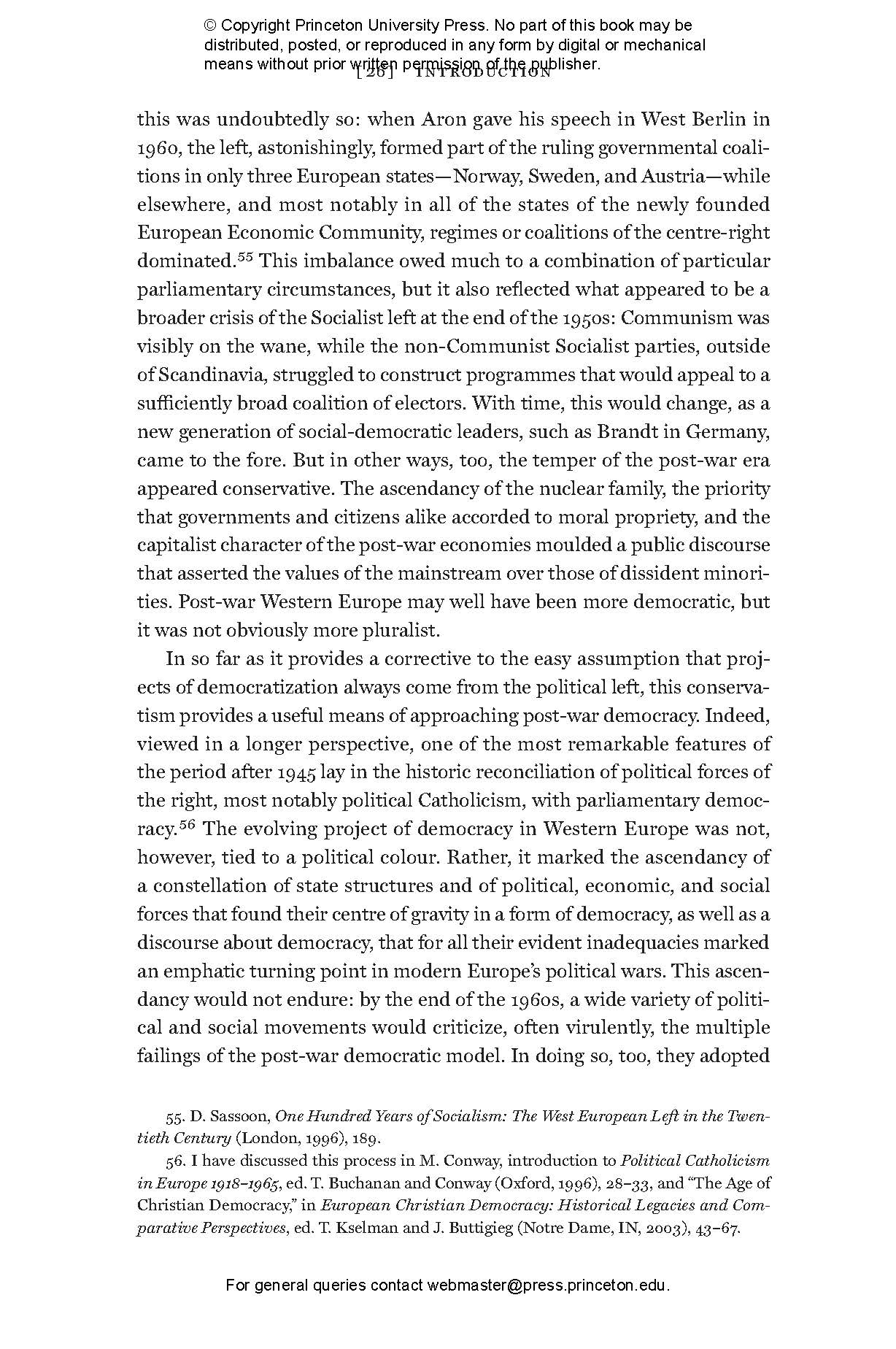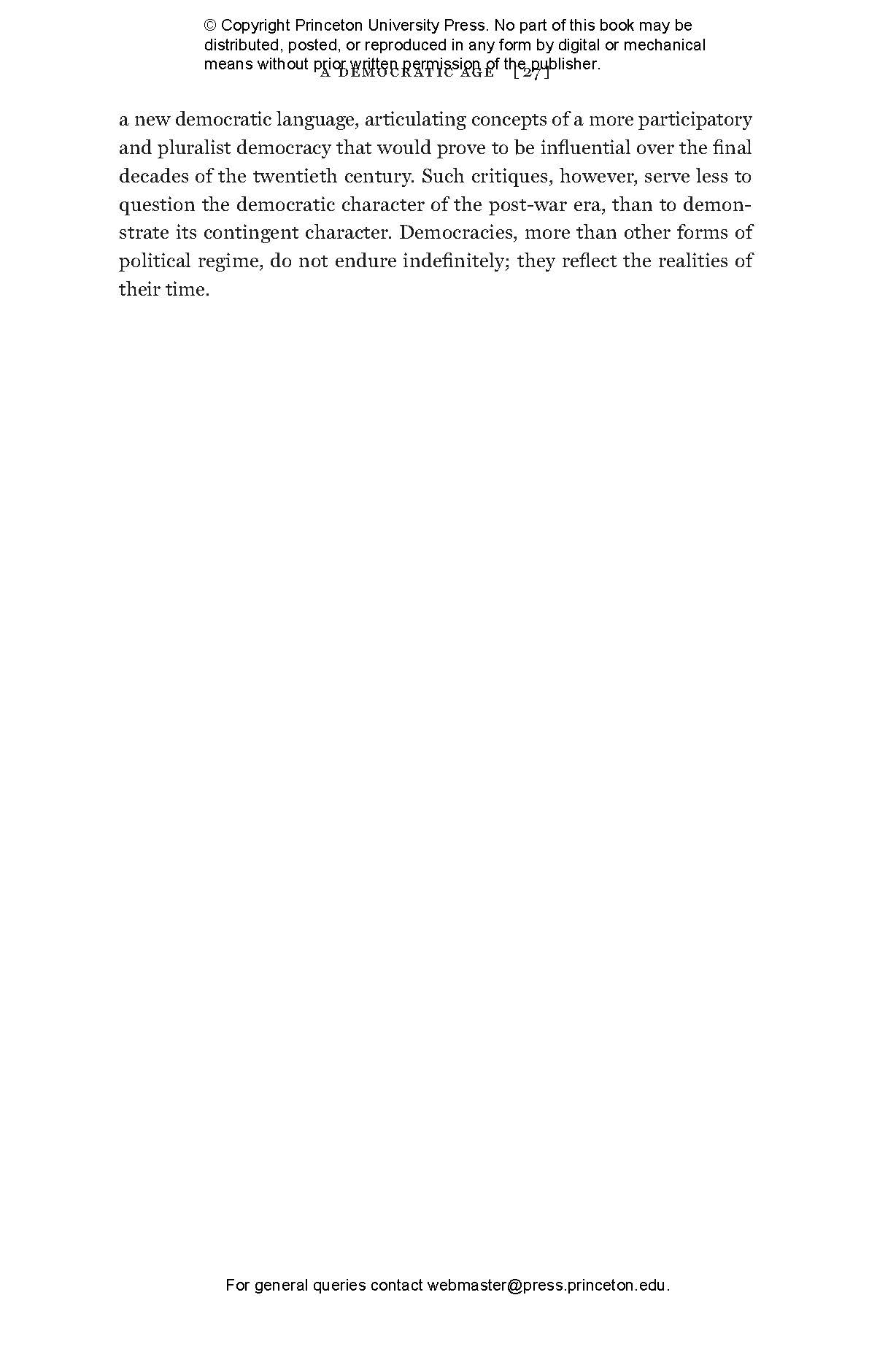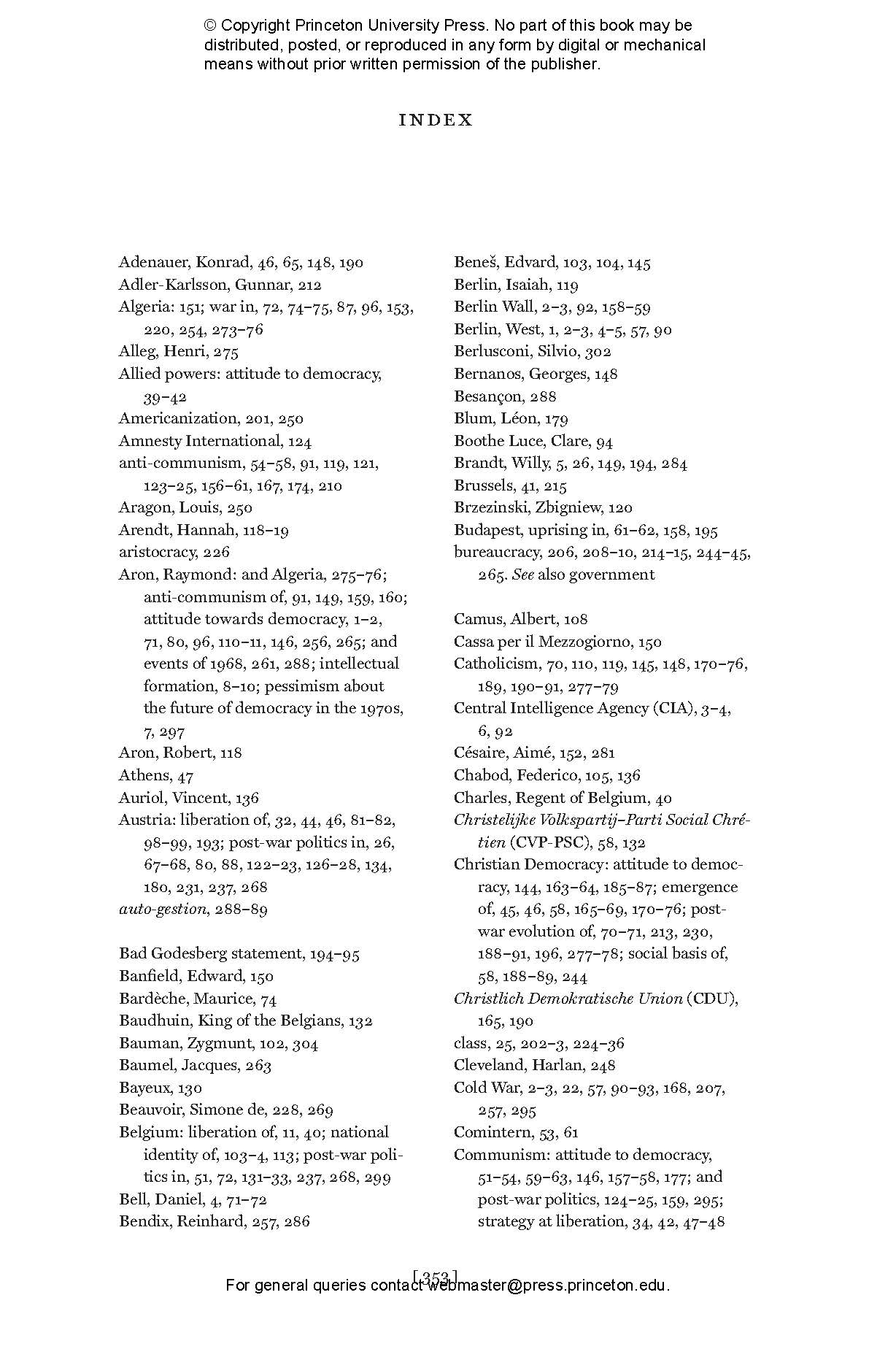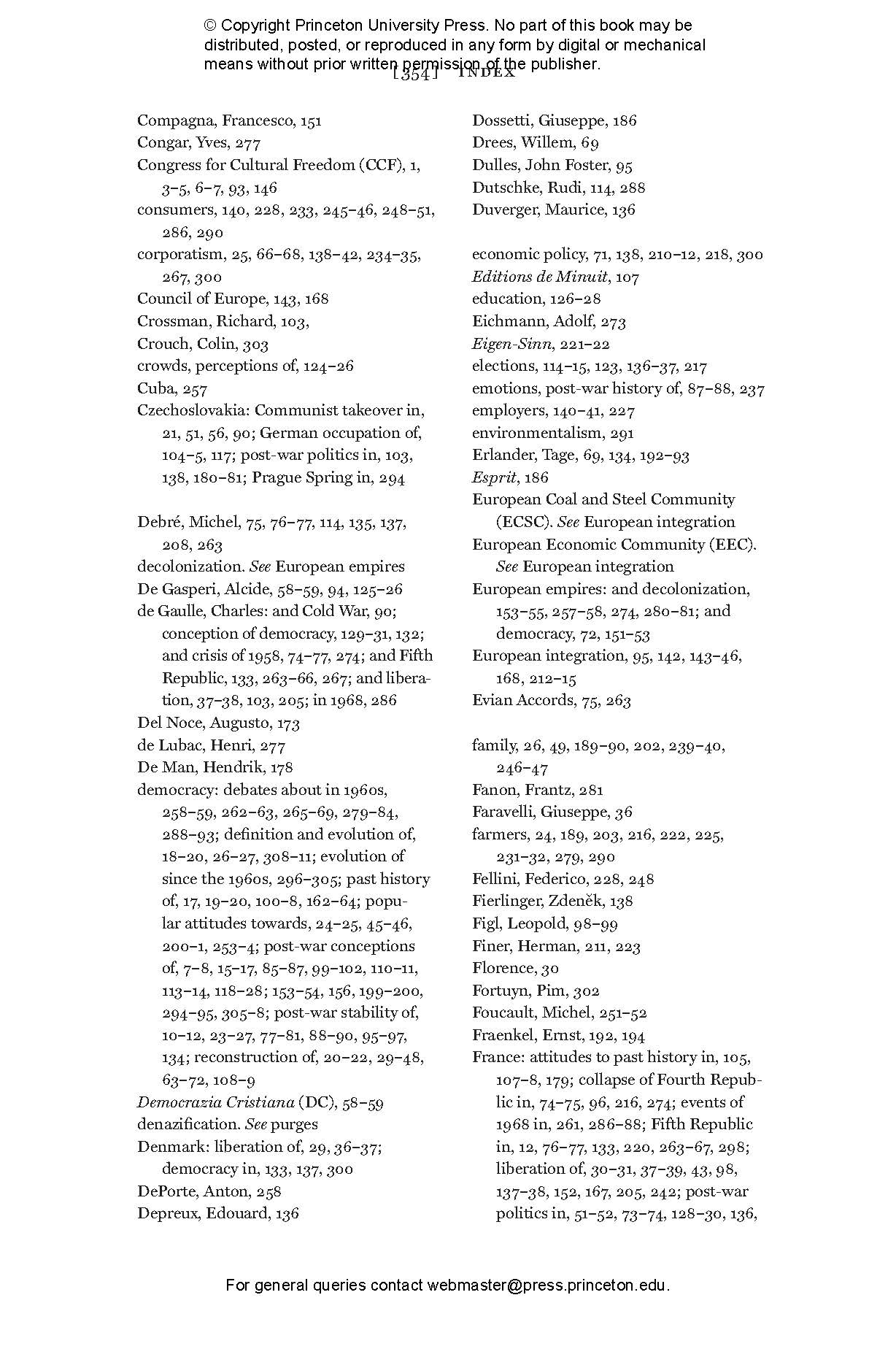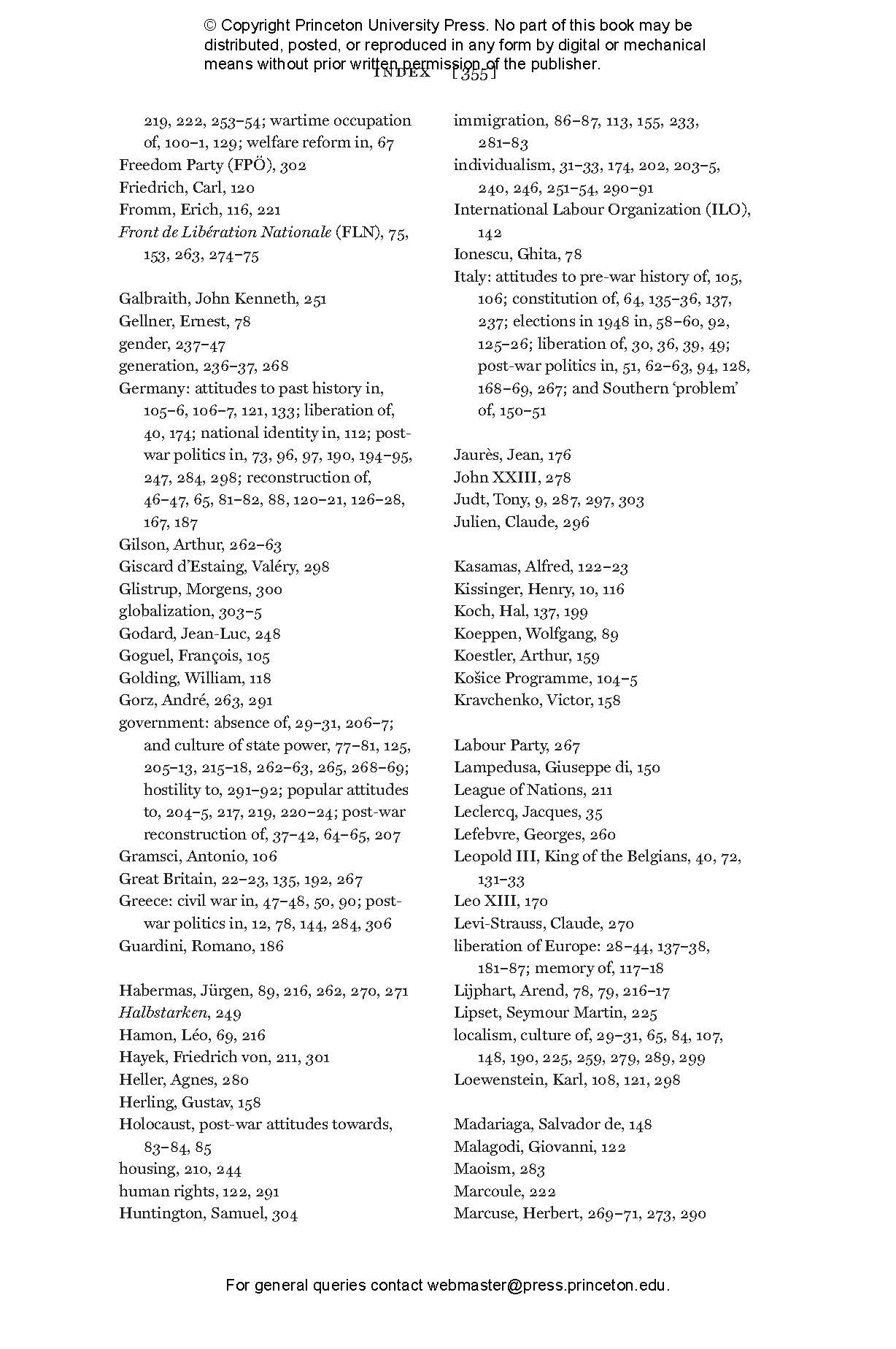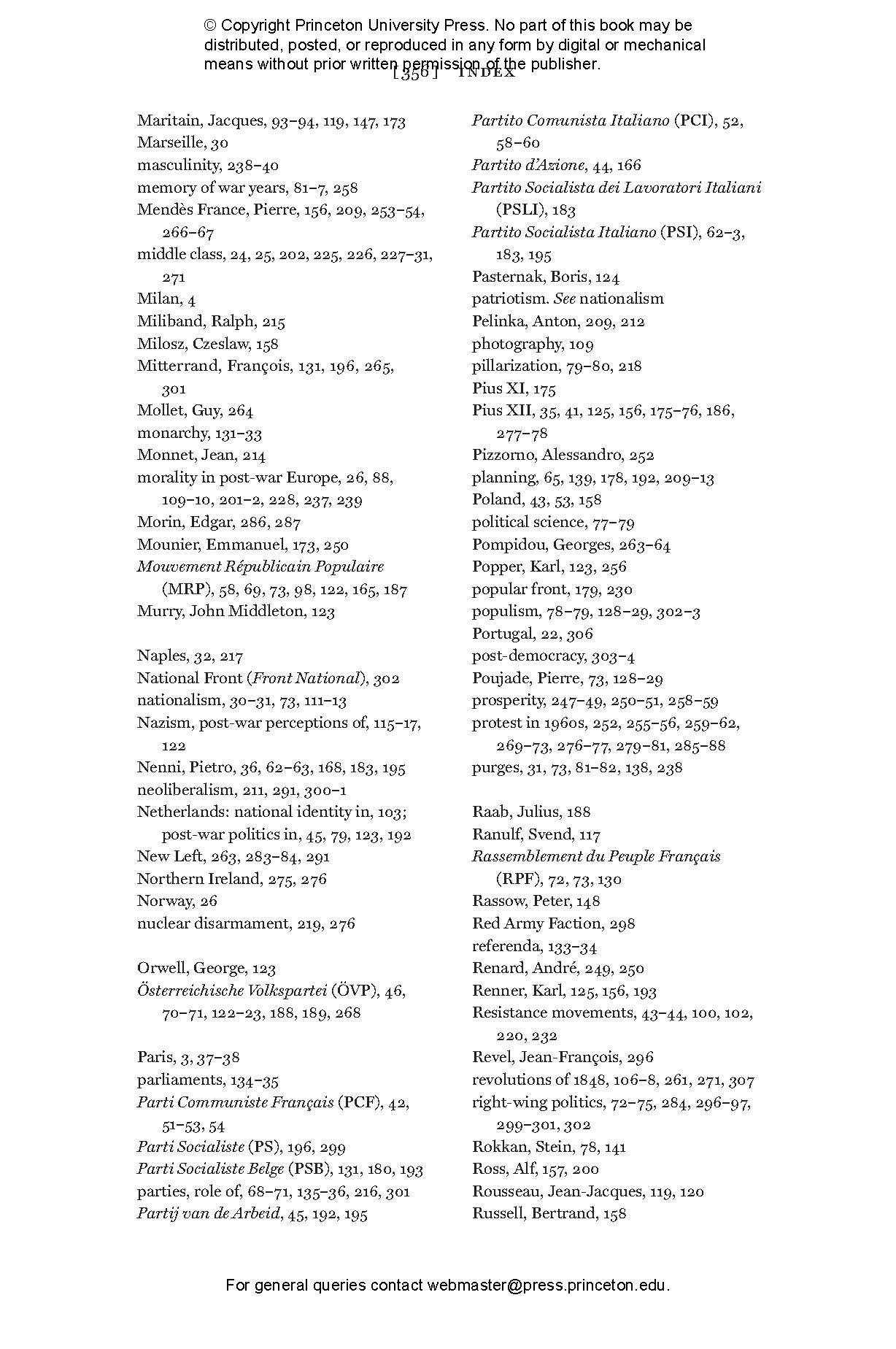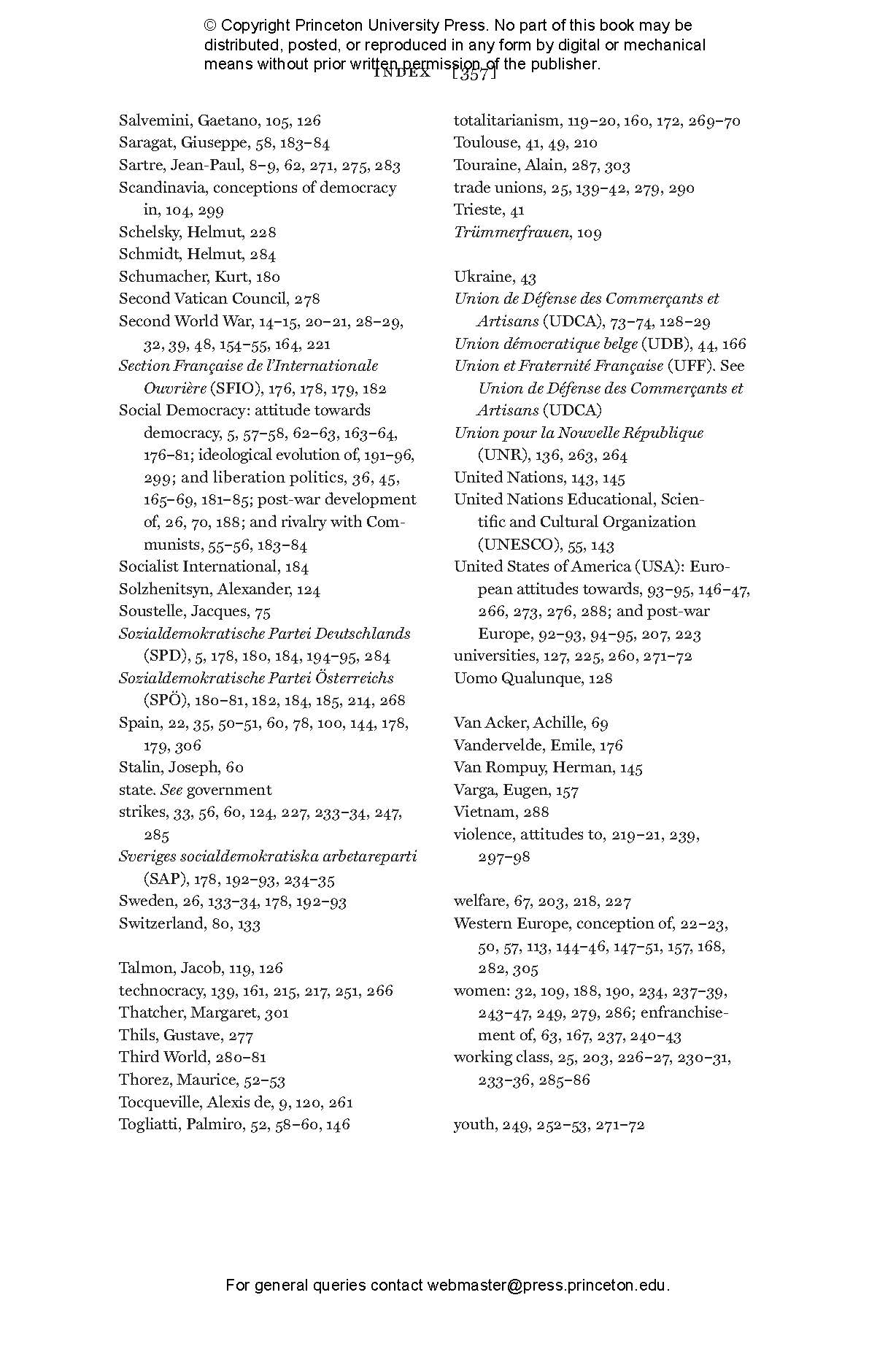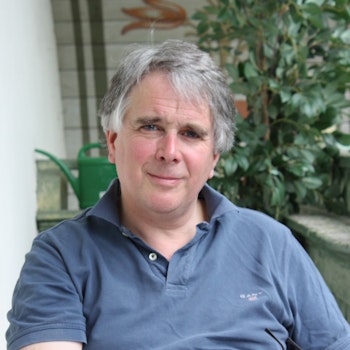What happened in the years following World War II to create a democratic revolution in the western half of Europe? In Western Europe’s Democratic Age, Martin Conway provides an innovative new account of how a stable, durable, and remarkably uniform model of parliamentary democracy emerged in Western Europe—and how this democratic ascendancy held fast until the latter decades of the twentieth century.
Drawing on a wide range of sources, Conway describes how Western Europe’s postwar democratic order was built by elite, intellectual, and popular forces. Much more than the consequence of the defeat of fascism and the rejection of Communism, this democratic order rested on universal male and female suffrage, but also on new forms of state authority and new political forces—primarily Christian and social democratic—that espoused democratic values. Above all, it gained the support of the people, for whom democracy provided a new model of citizenship that reflected the aspirations of a more prosperous society.
This democratic order did not, however, endure. Its hierarchies of class, gender, and race, which initially gave it its strength, as well as the strains of decolonization and social change, led to an explosion of demands for greater democratic freedoms in the 1960s, and to the much more contested democratic politics of Europe in the late twentieth century.
Western Europe’s Democratic Age is a compelling history that sheds new light not only on the past of European democracy but also on the unresolved question of its future.
Martin Conway is Professor of Contemporary European History at the University of Oxford and Fellow and Tutor in History at Balliol College. He is the author of a number of books, including, most recently, The Sorrows of Belgium: Liberation and Political Reconstruction, 1944–1947.
"An investigation of how this remarkably successful but 'consciously unheroic' transition was achieved in western continental Europe. A scholarly work of history that displays a deep knowledge of different political cultures, [Western Europe's Democratic Age] offers valuable context for today’s crisis of liberal democracy."—Ben Hall, Financial Times
"[Western Europe's Democratic Age] had a real influence on me."—E. J. Dionne Jr., Washington Post
"An important and insightful study. . . . highly readable [and] well-written."—Julia Eichenberg, H/Soz/Kult
“Martin Conway’s Western Europe’s Democratic Age offers a magisterial comparative analysis of a profoundly important topic. Based on meticulous scholarship, Conway’s book examines how and why democracy became such a central element of Western Europe’s political and cultural life in the decades after 1945. At a time of renewed uncertainty about the future of democracy in many countries around the globe, Conway offers a deep reflection on the appeal of democracy to many Western Europeans following the horrors of the Second World War. This insightful book deserves a wide audience.”—Robert Gerwarth, author of The Vanquished: Why the First World War Failed to End, 1917–1923
"An extremely stimulating, ambitious, and original history of the emergence and stabilization of democratic regimes in Europe after 1945."—Julian Jackson, author of A Certain Idea of France: The Life of Charles de Gaulle
“Western Europe’s Democratic Age is an intriguing account of the surprising stabilization of parliamentary democracy in Western Europe during the decades immediately following World War II. Its broad-ranging analysis of the dynamics and limitations of formal democratization sheds new light on Europe’s recurrent crises of self-government.”—Konrad H. Jarausch, author of Out of Ashes: A New History of Europe in the Twentieth Century
"In crisis or even threatened with collapse, European democracy has never seemed a more attractive subject. Martin Conway draws on his in-depth knowledge of Europe’s political cultures to provide a passionate history of the continent’s implementation of democratic principles and institutions. The result is a formidable antidote to the many uses of this past that are unaware of its complexity.”—Henry Rousso, author of The Latest Catastrophe: History, the Present, the Contemporary
